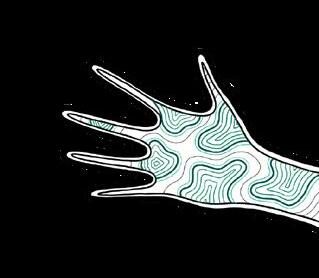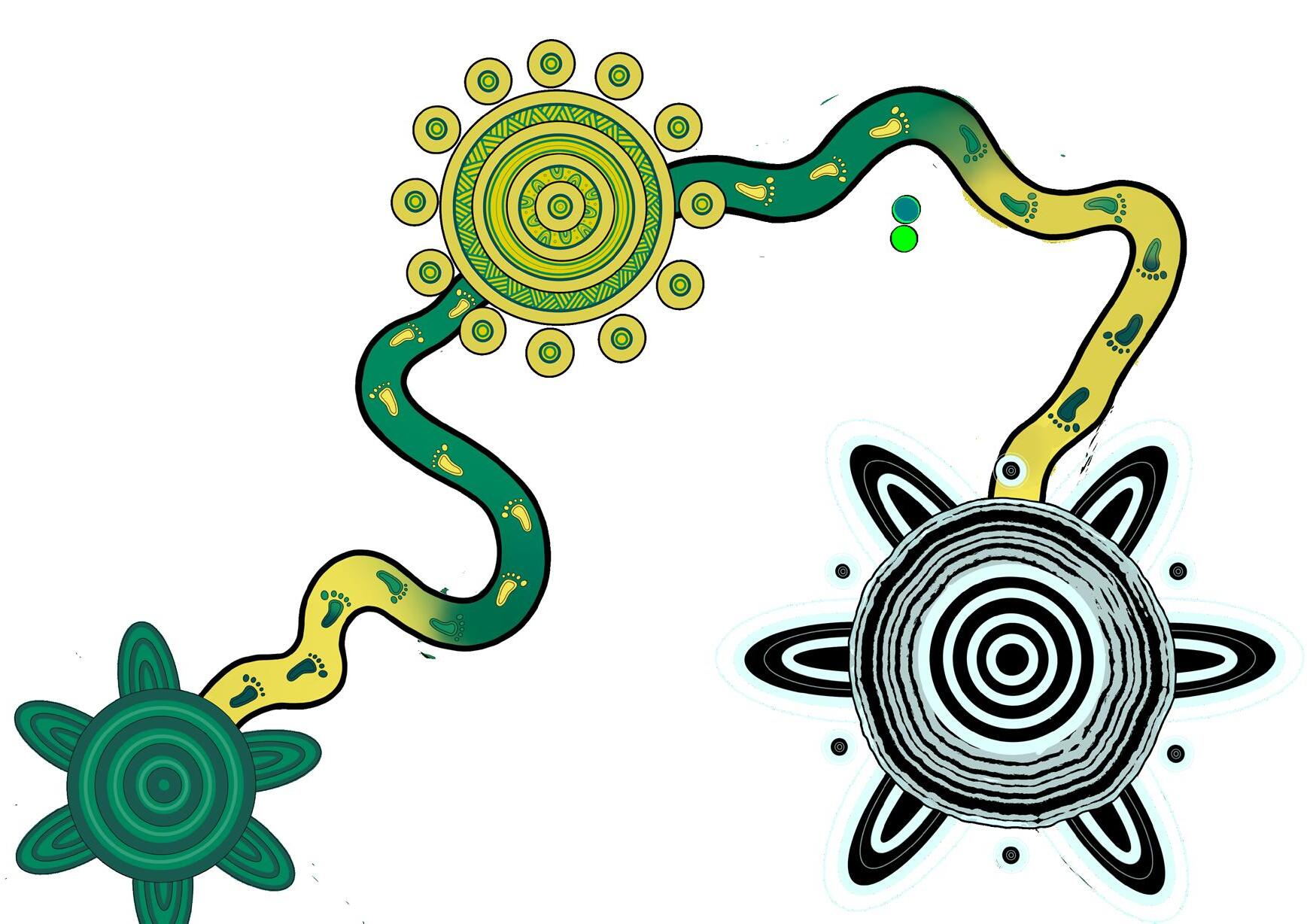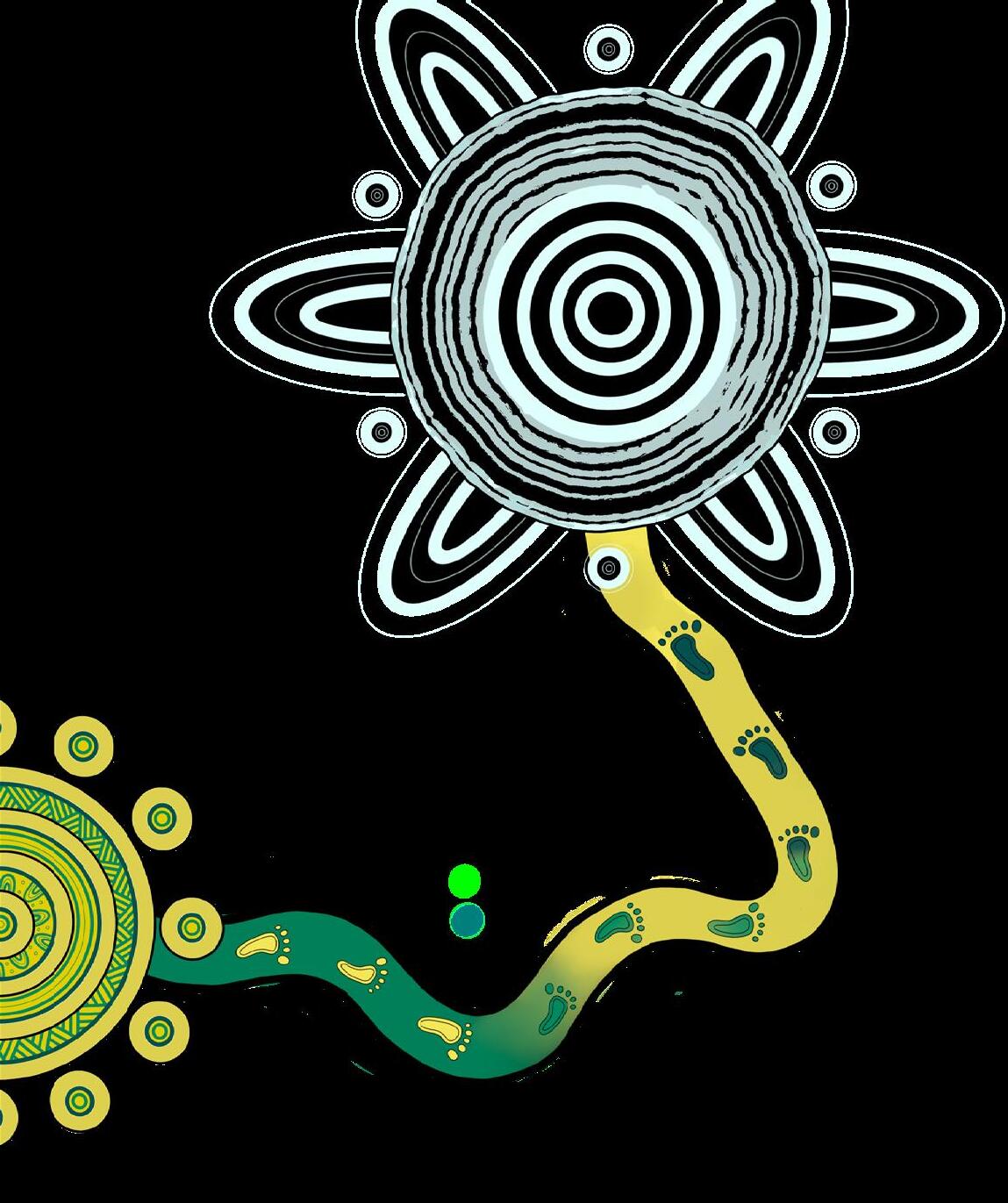

NOVEMBER 2024 - NOVEMBER 2027








NOVEMBER 2024 - NOVEMBER 2027





Cricket Australia acknowledges the Traditional Owners and custodians of the lands on which we are privileged to live, work and play the great game of cricket. We pay our respects to Elders past and present. Our Head Office is located on the land of the Wurundjeri-Woiwurrung peoples of the Kulin Nation in Naarm Melbourne. The National Cricket Centre is located on the land of the Turrbal and Yuggera clans of the Brisbane River Basin in Meanjin Brisbane.
Perth Stadium
WACA Ground Whadjuk
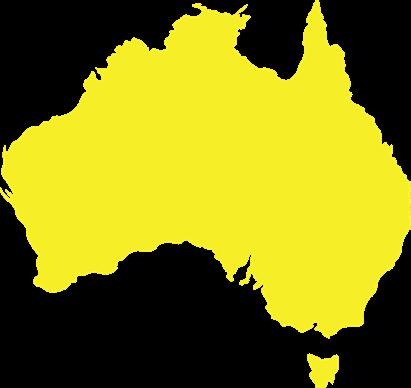
Adelaide Oval Kaurna
Junction Oval Bunurong
Great Barrier Reef Arena Yuwibara
The Gabba Yuggera + Turrbal
Sydney Cricket Ground Gadigal
CA Head Office
Terms: Cricket Australia acknowledges, values and respects the diverse histories, cultures, countries and languages that exists in Aboriginal and Torres Strait Islander communities. In this RAP we use the terms “Indigenous”. “First Peoples” and “First Nations” interchangeably with “Aboriginal and/or Torres Strait Islander peoples”.
We recognise the limitations and complexities when using these terms, appreciating the diversity that exists within these communities. This is not intended to cause offence.

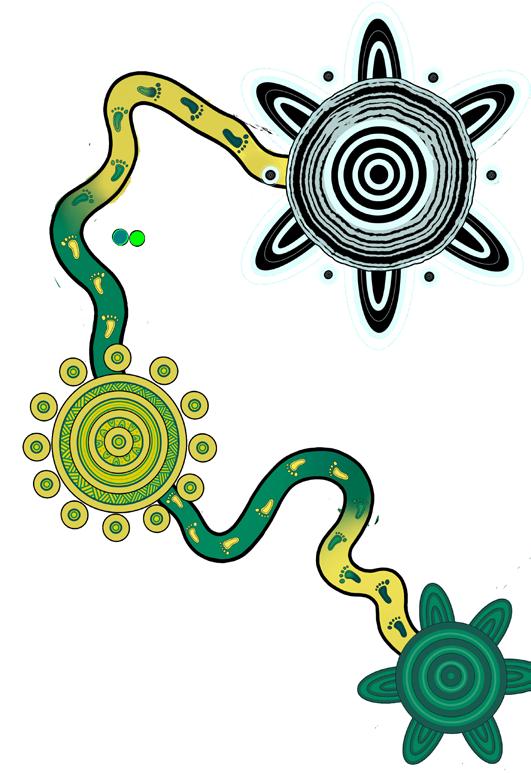
CA is developing our third Reconciliation Action Plan (RAP) and the second at Stretch.
Built on inspiration drawn from Cricket’s 10-year reconciliation journey, our RAP will set out how we will foster respectful and inclusive environments on and off the pitch, where equitable outcomes for Aboriginal and Torres Strait Islander peoples are delivered, cultures are celebrated and histories are accepted.

We commissioned Ky-ya Nicholson Ward to create an original artwork for our RAP. Ky-ya is a 21 year old Wurundjeri, Dja Dja Wurrung, Ngurai illum Wurrung, German and Irish woman and is based in Naarm (Melbourne). Ky-ya is a passionate First Nations artist who tells the stories of her ancestors, family and Country. She also uses her art to educate and to advocate political issues around the world. Ky-ya is also an activist, mentor and dancer with Djirri Djirri Cultural Services.
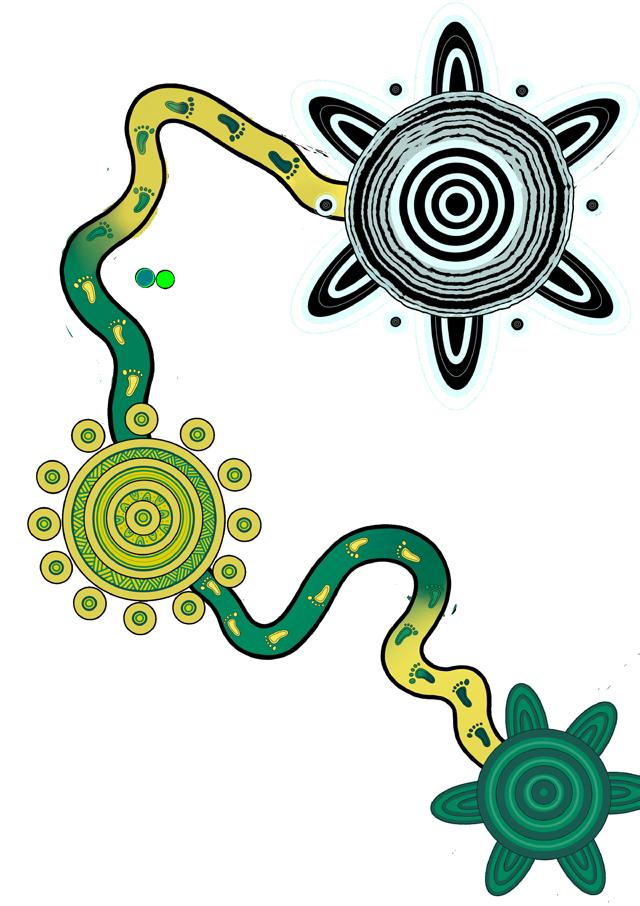
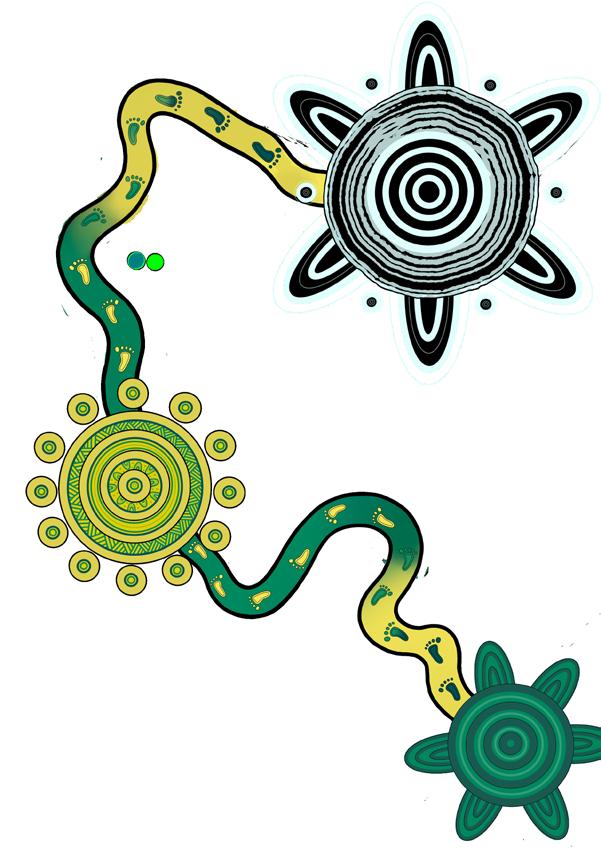
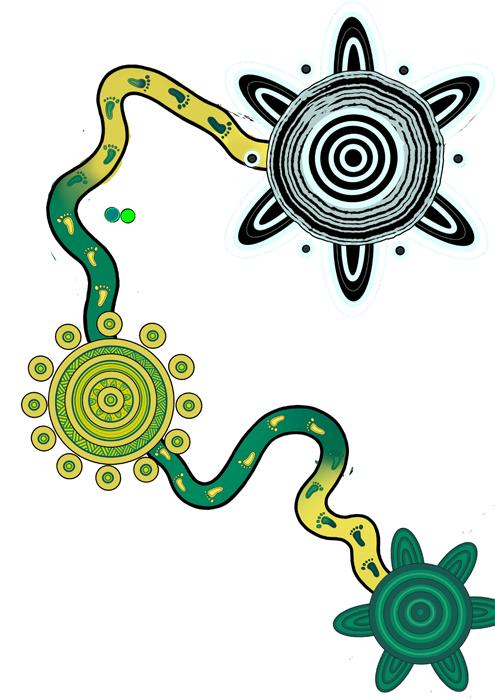
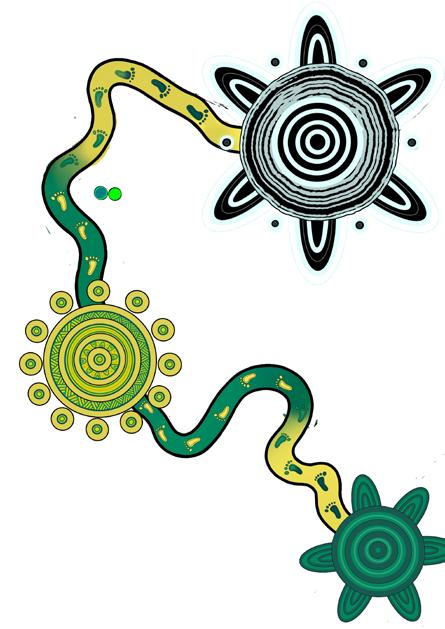
represents the future, symbolising discrimination, racism and overall who have represented Australia, highlighting how they inspire so many people and paving the way
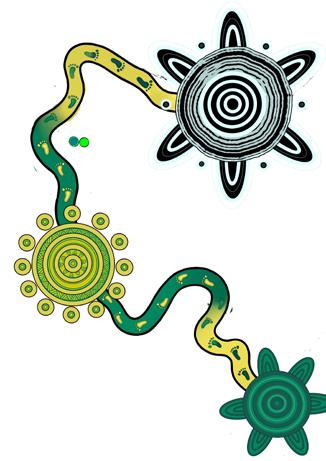
The footprints and paths connecting the meeting places represents the journey from the past, present to the future focusing on the aim of reconciliation, diversity and unity. The diamond linework symbolises the resilience and strength of First Nations people. The hands symbolise connection to Country and caring for each other.
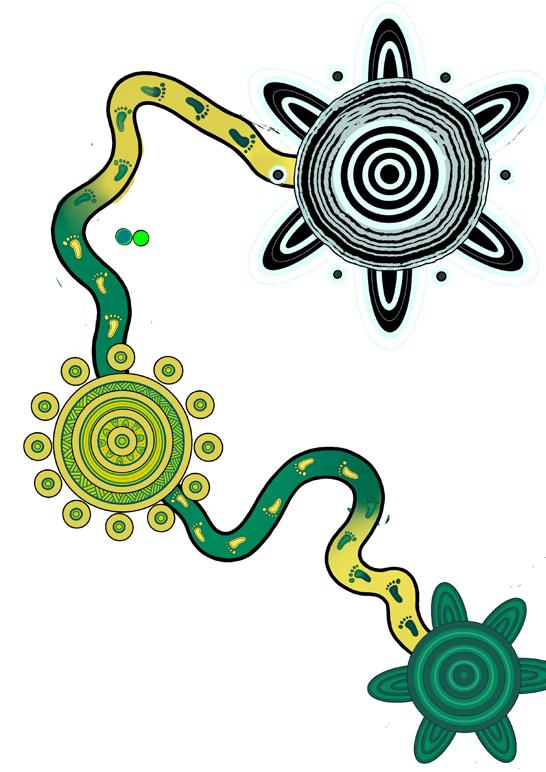
The meeting places in the background symbolises unity and inclusion. Highlighting the culture and community sport creates and the sense of belonging.
On behalf of Reconciliation Australia, I congratulate Cricket Australia (CA) on its renewed formal commitment to reconciliation, as it implements its second Stretch Reconciliation Action Plan (RAP), its third overall.
Through CA’s previous RAPs and its everyday work, we see sport’s unique ability to connect communities, build understanding and promote respect. Tapping into Australia’s passion for cricket positions CA well to strengthen relationships between non-Indigenous and Aboriginal and Torres Strait Islander people.
This work is evident in CA’s previous RAPs where it leveraged its public reach to increase visibility of Aboriginal and Torres Strait Islander accomplishments and cultural protocols through initiatives like the Reconciliation Round, the Mullagh Medal, barefoot circle ceremonies and the Walkabout Wicket logo.
Delivering these initiatives has also been a valuable learning experience for CA, making it clear that responsibility for actioning RAP commitments must be embedded across the whole business, so delivery is not impeded by inevitable changes in staffing or resourcing.
These successes and reflections have formed a foundation for CA to expand its commitments in this new RAP.
Conscious of how the shared love of cricket provides a powerful platform to help connect the newest Australians with the oldest continuous cultures on the planet, CA has launched a Multicultural Action Plan for Australian Cricket. As a majority migrant nation, we know culturally and linguistically diverse communities will be key supporters and drivers of reconciliation now and into the future and CA’s strategic approach here will help build strong, lasting relationships around this shared passion.
Expanding on its work to respectfully deliver cricket on 26 January, CA will work with its National Aboriginal and Torres Strait Islander Cricket Advisory Group (NATSICAG) to develop a place-based approach and guide to engage with Traditional Owners around the day and its historical context. Through this commitment, not only is CA centring Aboriginal and Torres Strait Islander voices, it is also creating opportunities for non-Indigenous people to participate in truth-telling and connect with First Nations people directly.
Through its previous RAPs and with these new commitments, it’s clear CA has the potential to drive considerable reconciliation outcomes across its sphere of influence. On behalf of Reconciliation Australia, I commend Cricket Australia on this Stretch RAP and look forward to following its ongoing reconciliation journey.
Karen Mundine Chief Executive Officer Reconciliation Australia
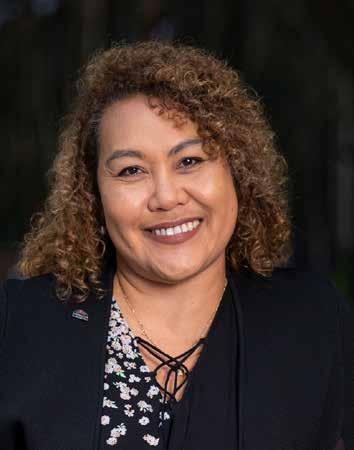
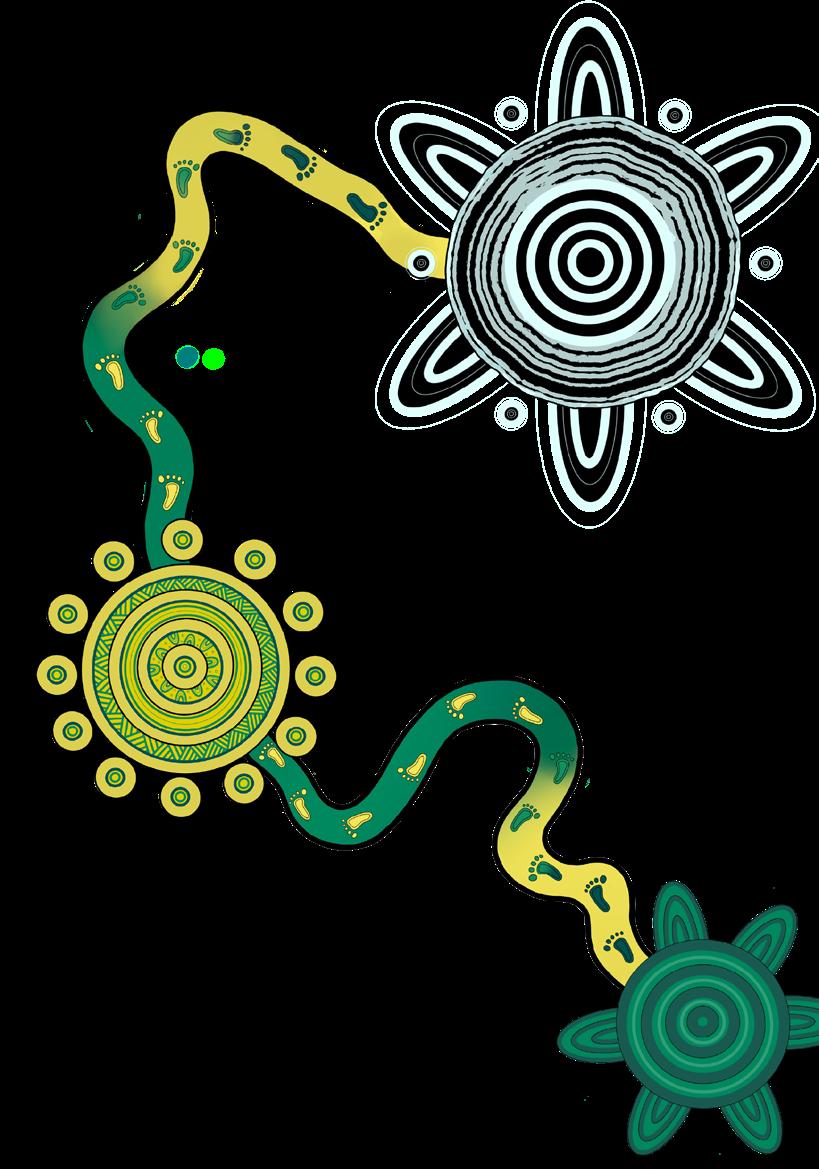
Sport has an unrivalled ability to connect communities, to bring people together, to build understanding and to promote respect.
As Australia’s national sport, we are committed to advancing Australia’s relationship with Aboriginal and Torres Strait Islander peoples, cultures and histories.
Cricket enjoys an unrivalled historical sporting connection with Aboriginal people through the First XI. The 1866 Boxing Day match at the MCG and the 1868 tour of England were landmark occasions in Australia’s sporting history, racial relations and national identity. In telling the truth about this aspect of cricket’s heritage, we not only celebrate its triumphs, but we also accept the colonial attitudes, the exploitation, the illness and the culture clash the team confronted at the time. We acknowledge the strength and the resilience of the team of Jardwadjali, Gunditjmara and Wotjobaluk men from Victoria’s western districts, their communities and their families – with whom we deeply appreciate the opportunity to continuously deepen relationships.
Historical acceptance is one of Reconciliation Australia’s five dimensions of reconciliation that has shaped this RAP, along with race relations, equality and equity, institutional integrity and unity and CA’s values: aspire, respect and lead together.
Earlier this year, we also launched our Multicultural Action Plan for Australian Cricket and are conscious of how the shared love of our game provides a powerful platform to help connect the newest Australians with the oldest continuous cultures on the planet. As a National Sporting Organisation, this includes working collaboratively with our State and Territory Associations to maximise our collective impact on reconciliation.
In this, our third RAP (successive Stretch), you will find considered internal and external, symbolic and practical measures to drive purposeful impact. It has been built on inspiration drawn from CA’s 10-year reconciliation journey during which much progress has been made. But progressing constructively also means looking back honestly on what we can do better.
We are particularly grateful to Aboriginal and Torres Strait Islander players, coaches, mentors and employees who have engaged in open and honest conversations to provide feedback in this regard.
We also thank Reconciliation Australia for their guidance, CA’s National Aboriginal and Torres Strait Islander Cricket Advisory Group (NATSICAG) for their invaluable contributions to cricket in Australia and CA’s RAP Working Group for their efforts identifying and prioritising high-impact actions to deliver on our vision for reconciliation - that cricket is known as a place where we all belong.
We look forward to reporting on our progress as we implement this RAP.
Nick Hockley Chief Executive Cricket Australia
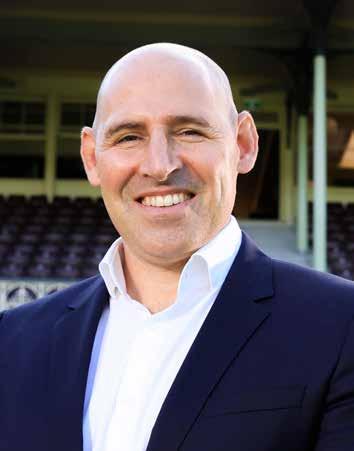
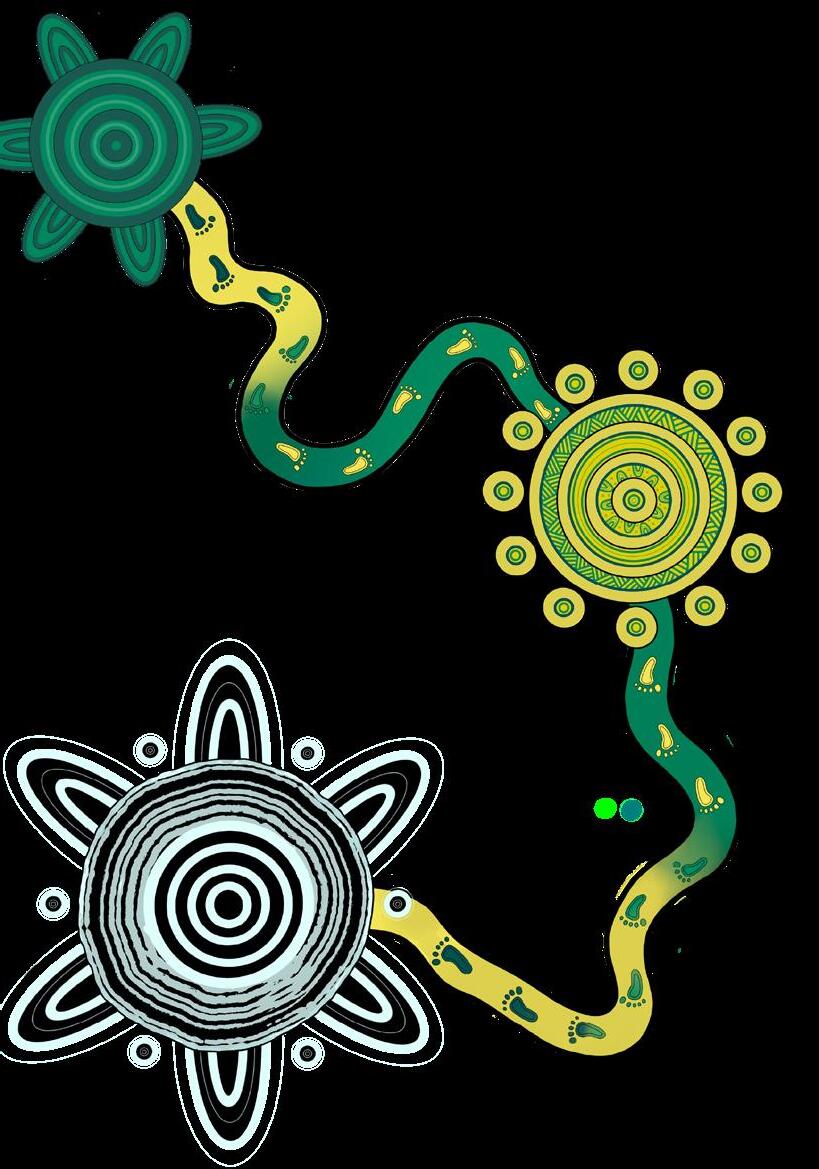
As Co-Chair of CA’s National Aboriginal and Torres Strait Islander Cricket Advisory Group, I would like to congratulate CA CEO Nick Hockley and the CA team, on the game’s third Reconciliation Action Plan.
CA’s decade-long journey has shown what’s possible when Aboriginal and Torres Strait Islander voices are heard and valued at every stage of the sport, especially in the development of our Reconciliation Action Plan.
Over the past 10 years, CA has consistently honoured Aboriginal and Torres Strait Islander protocols, developed pathways for Aboriginal and Torres Strait Islander cricketing talent and provided opportunities for all Australians to deepen their understanding of Country, culture and community.
These initiatives, guided by the wisdom shared by Aboriginal and Torres Strait Islander communities, have been important in helping the cricketing community to acknowledge our shared history and its ongoing impact, while envisioning a future built on mutual respect and unity.
While we are proud of the progress we’ve made, we know there is more work to do. This RAP is a living document, evolving as we learn and grow on this journey together.
Aboriginal and Torres Strait Islander voices have been integral at every step of developing our RAP, with their perspectives shaping decisions from grassroots to elite levels.
Aboriginal and Torres Strait Islander players, coaches, mentors, employees, senior community leaders and my fellow members of the CA National Aboriginal and Torres Strait Islander Cricket Advisory Group have all played key roles in guiding this journey.
By continuing to listen, learn and grow, we look toward a future where cricket is known as a place where we all belong.
Justin Mohamed Co-Chair
Cricket Australia’s National Aboriginal and Torres Strait Islander Advisory Group
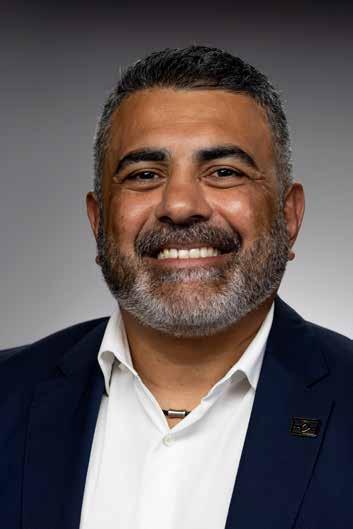

CA’s Ambassador Program:
• advocates for greater inclusion and diversity across the game; and
• strengthens connections with cricket’s past and present role models, whose performances and stories inspire our nation.
Our Ambassadors have been engaged throughout the development of this document including providing input into the RAP artwork.
Scott is a Gulidjan man. He has played 10 Tests, 14 ODIs and 3 T20Is for Australia. He was also awarded the Mullagh Medal – Player of the Match award – on his Test debut at the MCG in 2021. In 2018, Scott was part of the 150th anniversary tour of England to commemorate the 1868 First XI.
Hannah is a Kamilaroi woman who made her debut for Australia in 2021, becoming the third Aboriginal woman to do so. She captained the Australian Women’s Indigenous Team in 2023, during the Vanuatu tour. Hannah represents the NSW Breakers and Sydney Thunder and became the youngest captain in Australian domestic cricket history, being only 19 when she took on the honours. Hannah is also a casual facilitator with Burn Bright, supporting youth leadership and wellbeing and is co-host of podcast ‘She’s in the Game’.
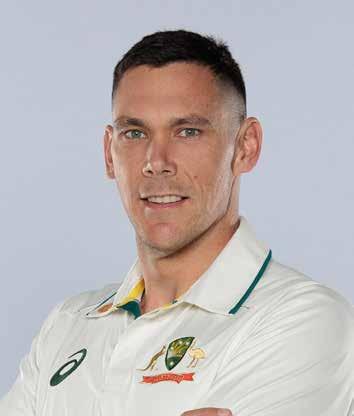
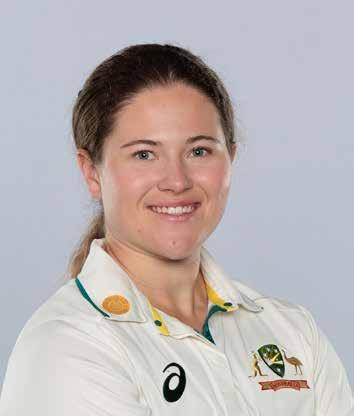
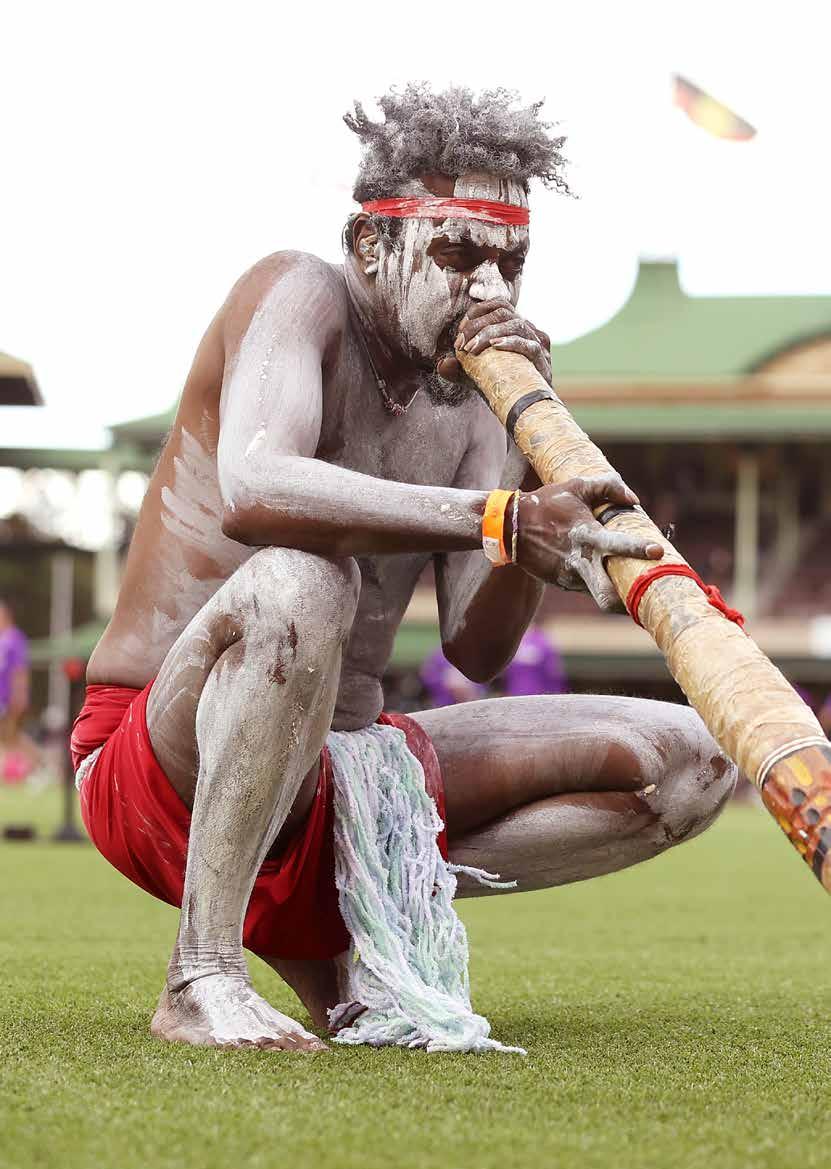
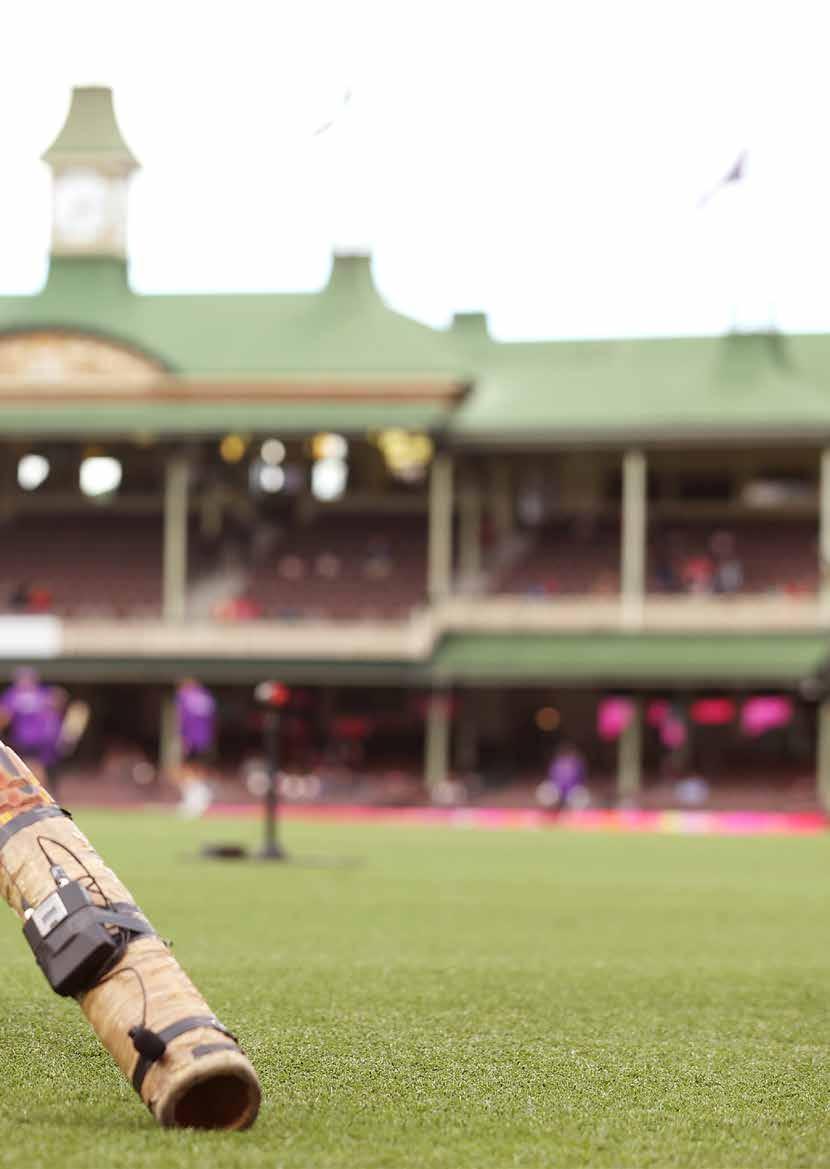
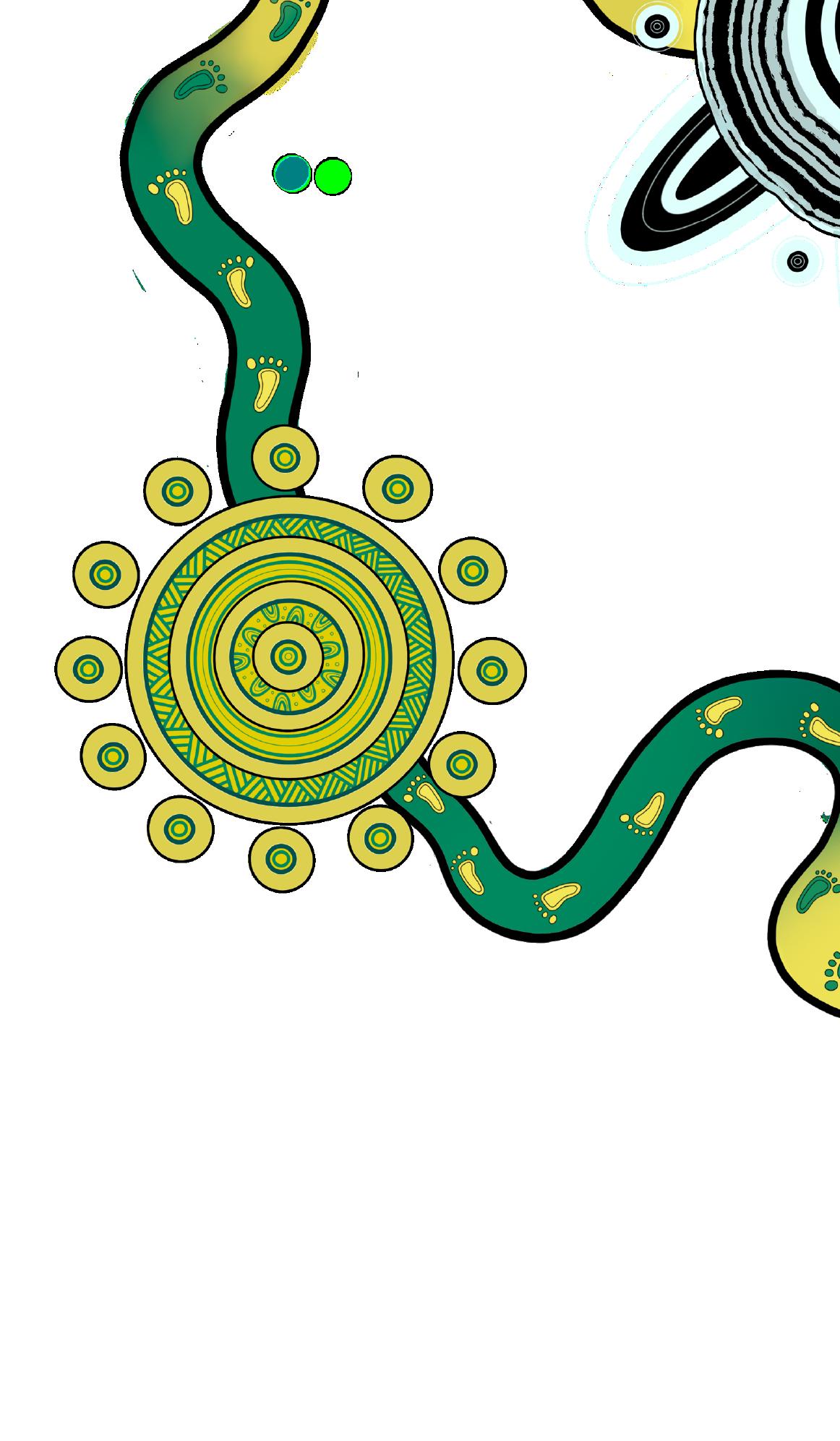
FOR THE LOVE OF THE GAME
Research into the development of Indigenous cricket in Australia was conducted by the Australian National University (Dr Bill Fogarty; Professor Mick Dodson AM and Ms Corinne Walsh) in partnership with CA.
CA launched its first Reflect Reconciliation Action Plan.
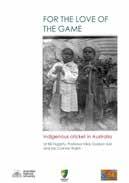
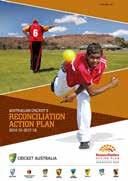
The National Aboriginal and Torres Strait Islander Cricket Advisory Committee was formed in 2014, providing advice and guidance to CA on our RAP and issues relating to Aboriginal and Torres Strait.
NATIONAL INDIGENOUS CRICKET STRATEGY FOR GAME AND MARKET DEVELOPMENT
The strategy was developed to grow Indigenous participation at all levels of cricket and focused on the creation of heroes across players, coaches, umpires, officials and administrators with comprehensive targets and responsibilities throughout.
CLONTARF PARTNERSHIP
Following a pilot in 2013, CA funds 8 week cricket program for boys in Clontarf academies across Australia.
CA funds cricket program for girls, piloting in Darwin.
NATIONAL INDIGENOUS CRICKET CHAMPIONSHIPS
Following the growth of the Imparja Cup, the NICC were formed in 2016 and are held annually.
WALKABOUT WICKETS LOGO
Designed by Kirrae Whurrong artist Aunty Fiona Clarke to commemorate the 150 year anniversary of the 1866 Boxing Day match.
Male and Female Aboriginal XI squads undertake a tour of England to mark the 150th anniversary of the 1868 Aboriginal team that toured the UK. Australia Post releases a special stamp to mark the event.
WOOLWORTHS CRICKET BLAST KIT
Designed by 16-year old Aboriginal artist and Dharawal man Billy Reynolds.
In CA’s 2022-2027 Strategic plan, we committed to build on the momentum of our past Reconciliation Action Plans and accelerate our work to inspire and unite our nation’s First Peoples and non-Indigenous Australians to find common ground and connect through cricket. While we know there is more to do, we’ve been making progress over the past decade.
Of the 104 Actions: 76% completed; 12.5% in progress; 11.5% weren’t started.
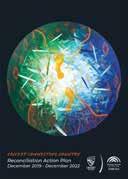
Chair Mike Baird publicly supports the establishment of the Voice on behalf of the CA Board.
Men’s and Women’s National Indigenous Squads travelled to Vanuatu for a PacificAus Sports supported tour where they each played four T20 matches.
A replica of the belt buckle worn by the 1868 Aboriginal players was converted into a medal, named in honour of 1868 First XI star Johnny Mullagh. Awarded annually at the Boxing Day Test.
Annual Reconciliation Round for community and premier clubs first commenced in February 2020 aligning with the Walkabout Wickets International match between the Australian and England Women’s Cricket Teams.
The inaugural Women’s Big Bash League First Nations Round in November 2021. The BBL launched its inaugural First Nations Round in January 2022.
CA stops referring to 26 January as “Australia Day” in marketing and promotional material.
Men’s and Women’s National Indigenous Squads participate in a high performance development camp in collaboration with the Melbourne Cricket Ground (MCC) Foundation at the MCG, from 2023 to 2025.
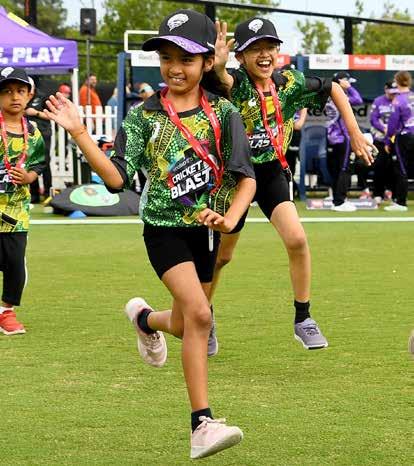
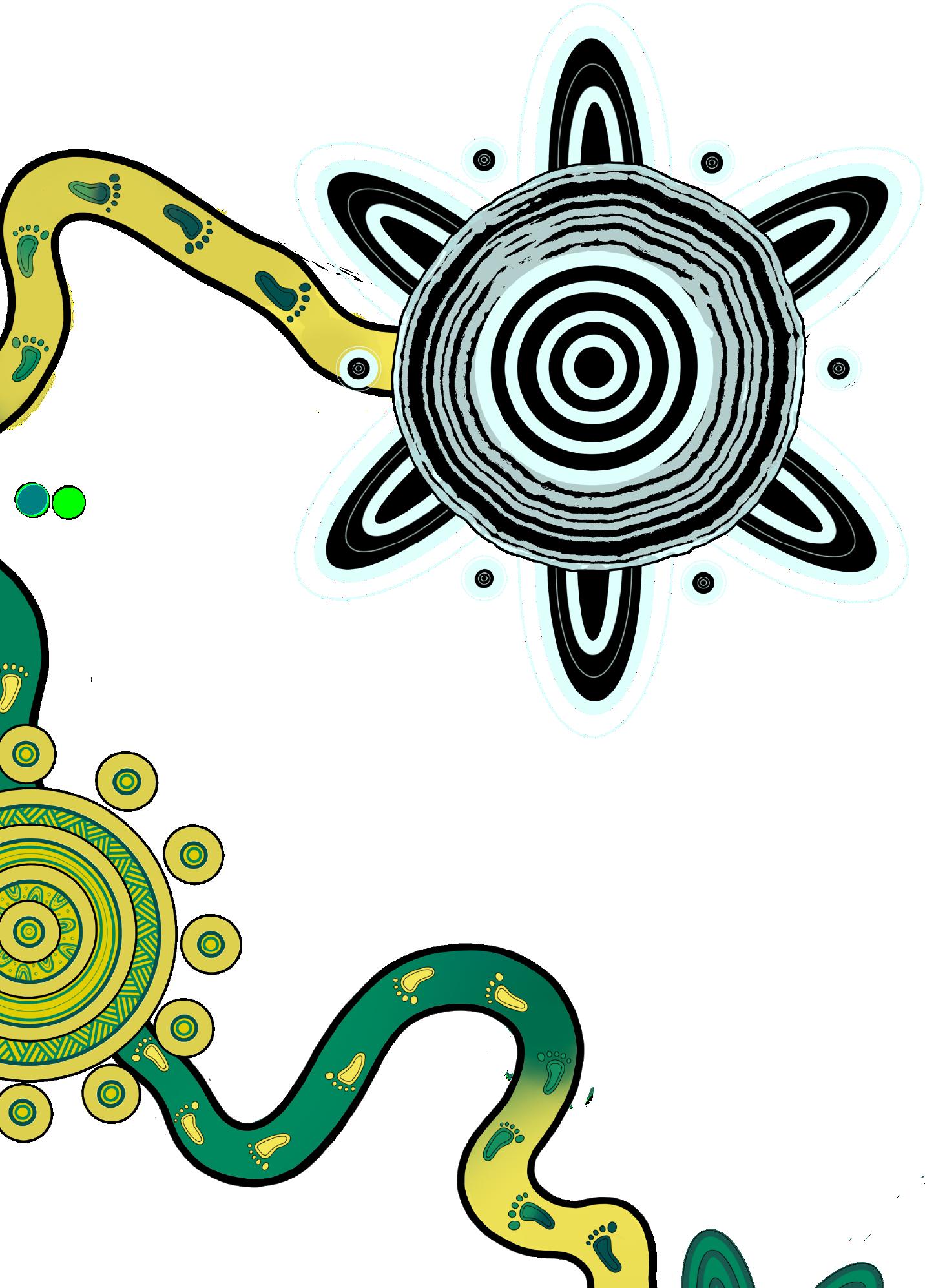
Aboriginal and Torres Strait Islander fans have:
A stronger skew to high avidity than General Population fans. This indicates a higher degree of passion among Aboriginal and Torres Strait Islander respondents.
• A higher proportion of cricket attendance and potentially greater interest among the community to attend live sport than General Population fans (Nielsen Fanlinks Data, as at Q1 – Q4 2022).
• A higher awareness of the Woolworths Cricket Blast program.
• A higher interest in both Big Bash Leagues than non-Indigenous respondents (Nielsen Brand Health Data, as at July – October 2023).

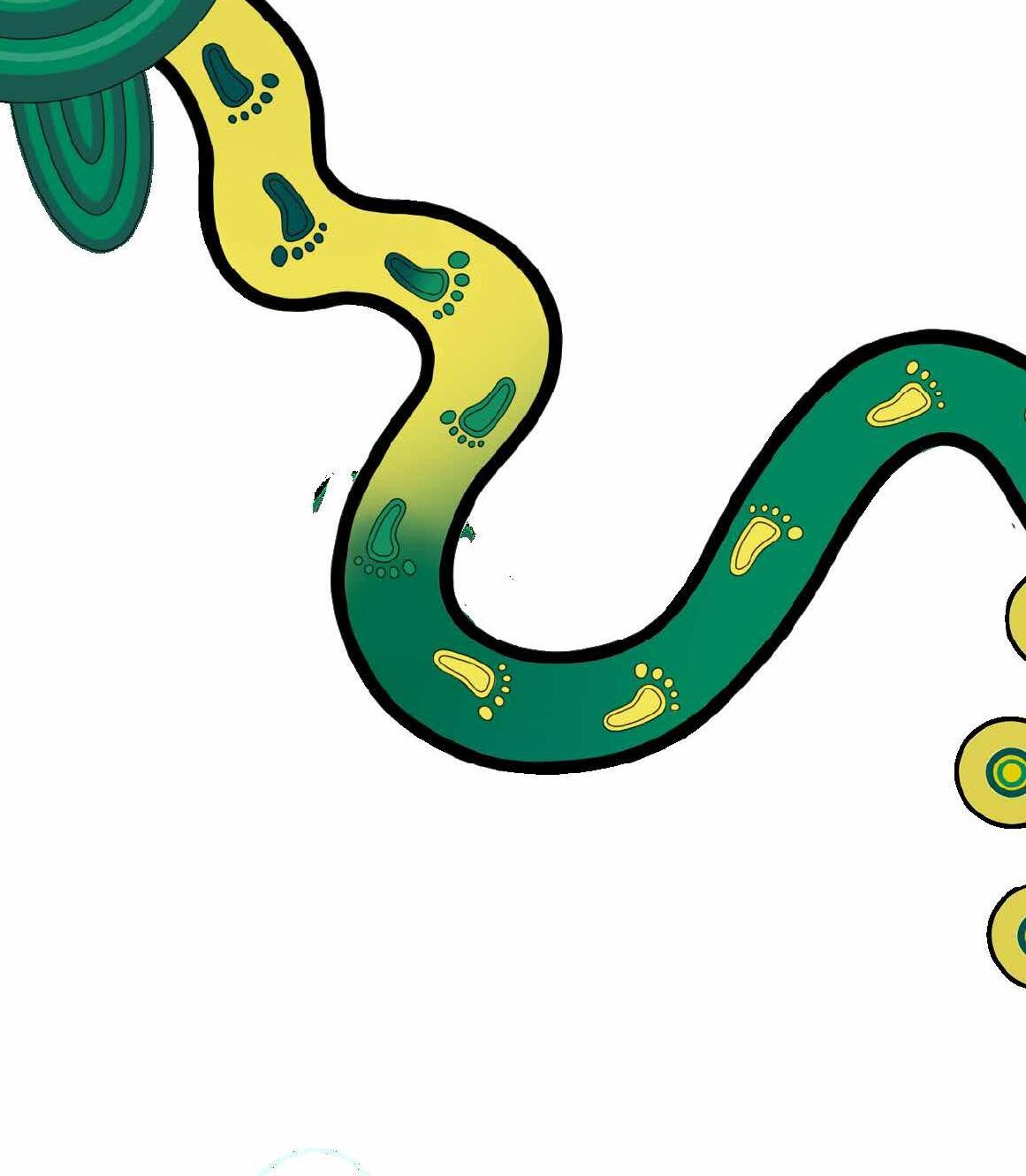
62.5% of State and Territory (S+T) Cricket Associations have a RAP, along with the Australian Cricketers’ Association.

Annual coordination of National Reconciliation Week and NAIDOC Week communications (including digital content) learning opportunities and activities.
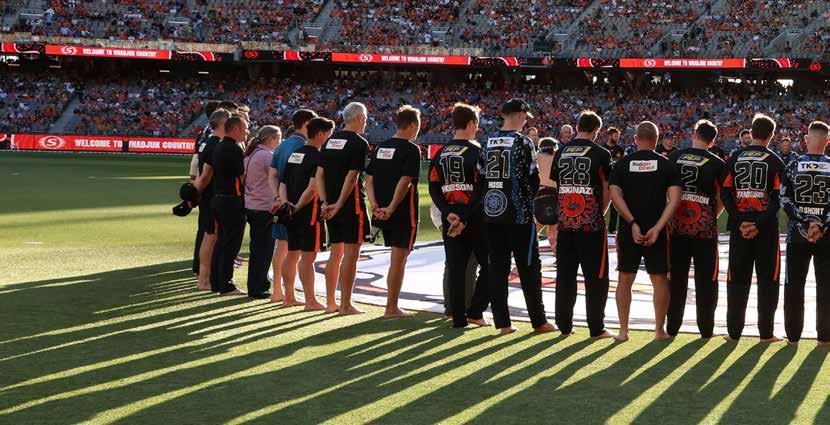

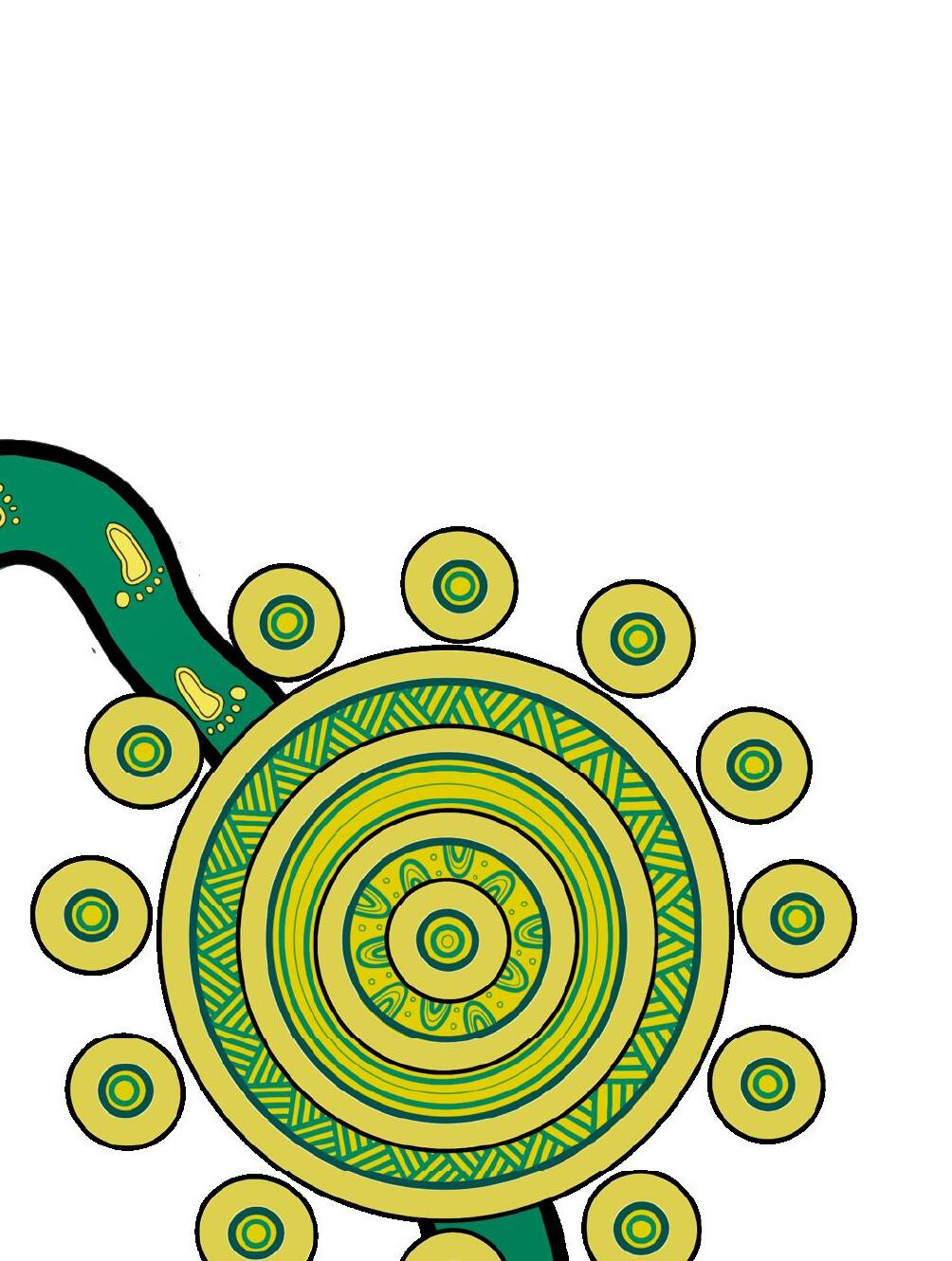
CA employee registrations to participate in cultural awareness learning offerings (in FY 2023). Better data processes are required to capture completion rates.

100%
completion of anti-racism training in 2023 by CA employees (via roll out of CA’s mandatory Respect@Work training module).

CA’s existing engagement and cultural learning strategy reviewed and updated.

Welcome to Country or Acknowledgement of Country incorporated into all international cricket matches. Cultural protocol briefing information provided to all visiting international teams.



Australian Men’s and Women’s Teams regularly participate in immersive cultural learning experiences on Country.
Big Bash Leagues First Nations Round, including communications, learning opportunities, cultural activities and gift swaps, incorporation of artwork and language into match experience and shirt designs.

Barefoot Circle ceremony performed at all levels of cricket, from the Australian Men’s and Women’s Teams at International Test matches, W/BBL, Premier and community cricket clubs during annual Reconciliation Round. Walkabout Wickets incorporated into all national uniforms for 2023/24 season.
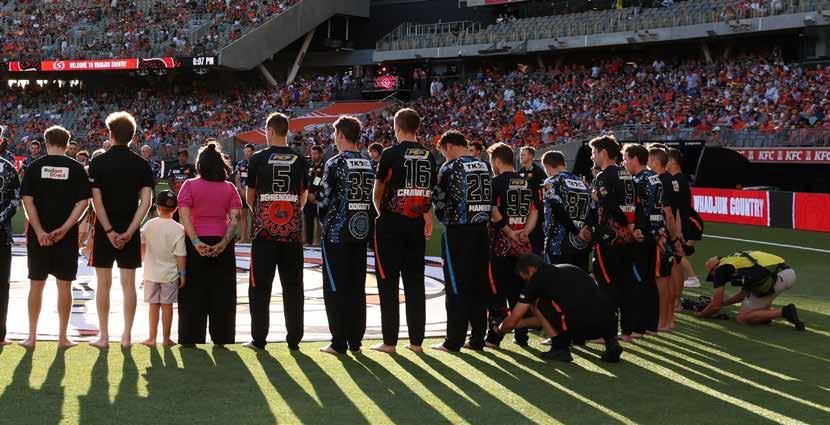

Aboriginal players currently represent Australia at international Test level.

Aboriginal players have represented Australia at international Test level since 1880.

Aboriginal or Torres Strait Islander players have played in the Australian Men’s or Women’s team across all formats since 1880.

6
Aboriginal and Torres Strait Islander women in WBBL and/ or S+T Association squads for the 2023/24 season.
2.8%
players in national pathway teams identify as Aboriginal or Torres Strait Islander people (2022/23 season data).
27
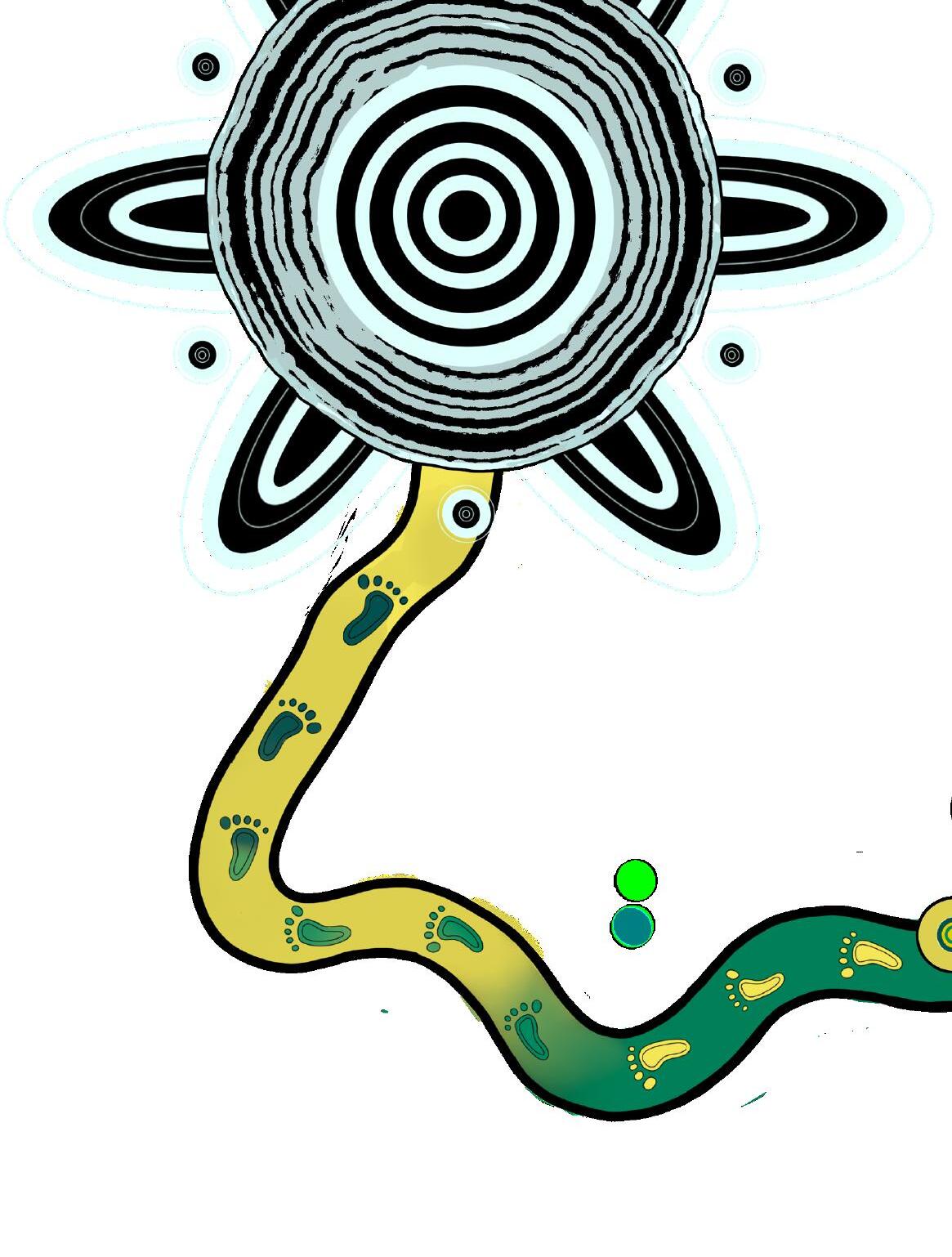
Aboriginal men in BBL and/or S+T Association squads for the 2023/24 season.

Aboriginal and Torres Strait Islander cricketers participated in the National Indigenous Cricket Development Training Camp in 2023. 2 4 8 3
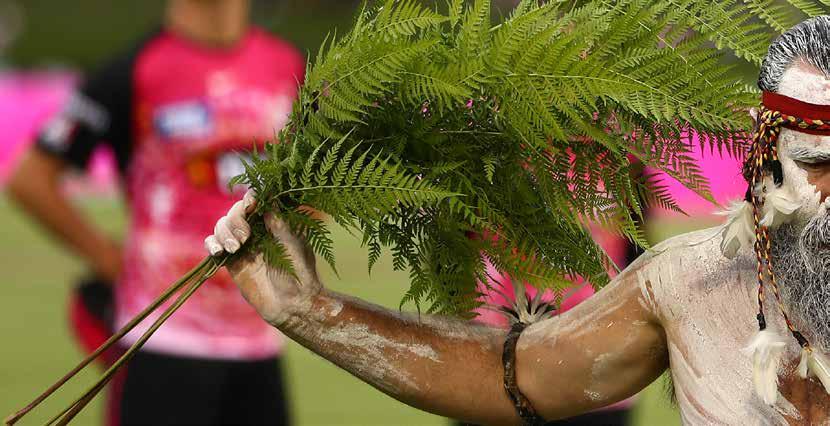


1 coaching scholarship provided to an Aboriginal coach annually.

Baseline national data is needed for Aboriginal and Torres Strait Islander: coaches, umpires, volunteers and team managers.

2.4% of registered cricket participants nationally identify as Aboriginal or Torres Strait Islander people (2022/23 season data).





3.75% of registered WWCB participants nationally identify as Aboriginal or Torres Strait Islander people (as of November 2023).

50% of S+T Associations entered both a men’s and women’s team in the 2023 and 2024 National Indigenous Cricket Championships.

0.66%
of CA employees identify as an Aboriginal or Torres Strait Islander person.
C.6
Aboriginal or Torres Strait Islander people engaged by CA as casual contractors (November 2023).
1
Aboriginal person on Australian Cricket Boards (November 2023).
0.47%
of CA Aboriginal and Torres Strait Islander procurement spend on Aboriginal and Torres Strait Islander businesses (in FY 2023).
Aboriginal and Torres Strait Islander Procurement Strategy developed.
CA’s Aboriginal and Torres Strait Islander Employment Retention and Professional Development Strategy reviewed and updated.

CA’s Aboriginal and Torres Strait Islander Cultural Protocols reviewed and updated.
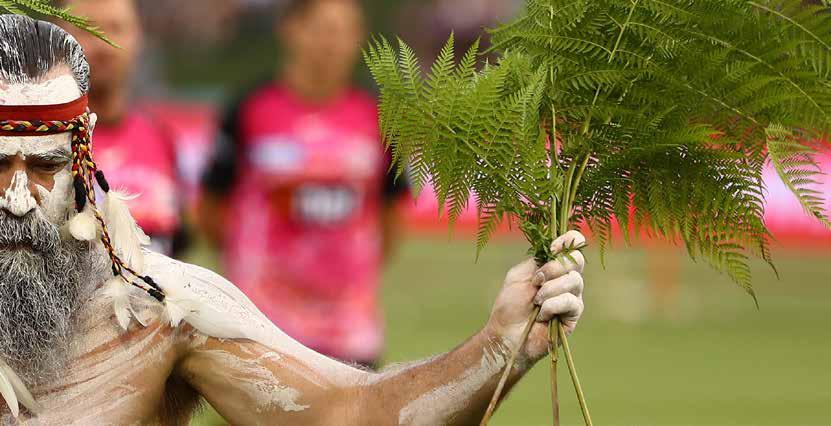
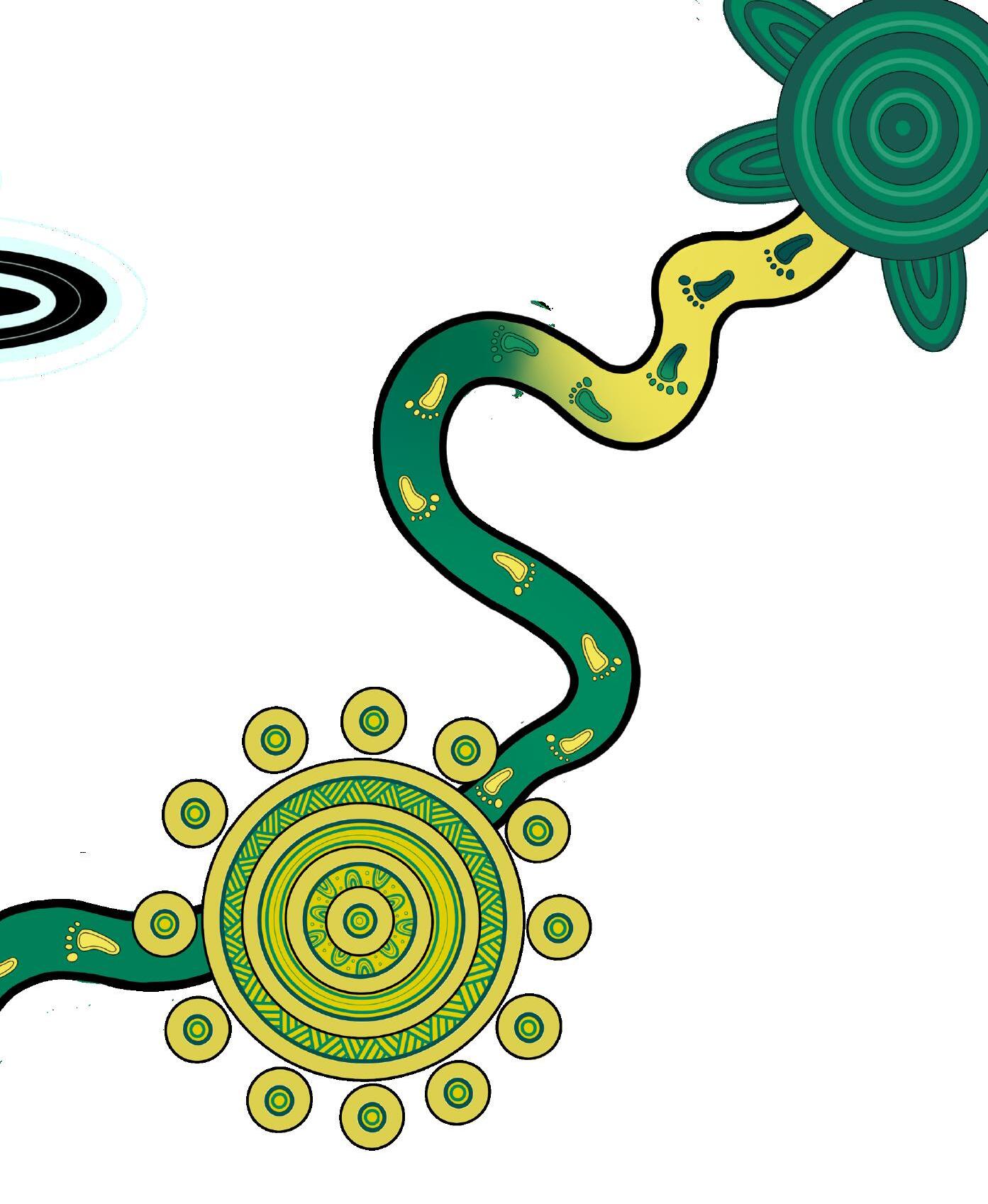
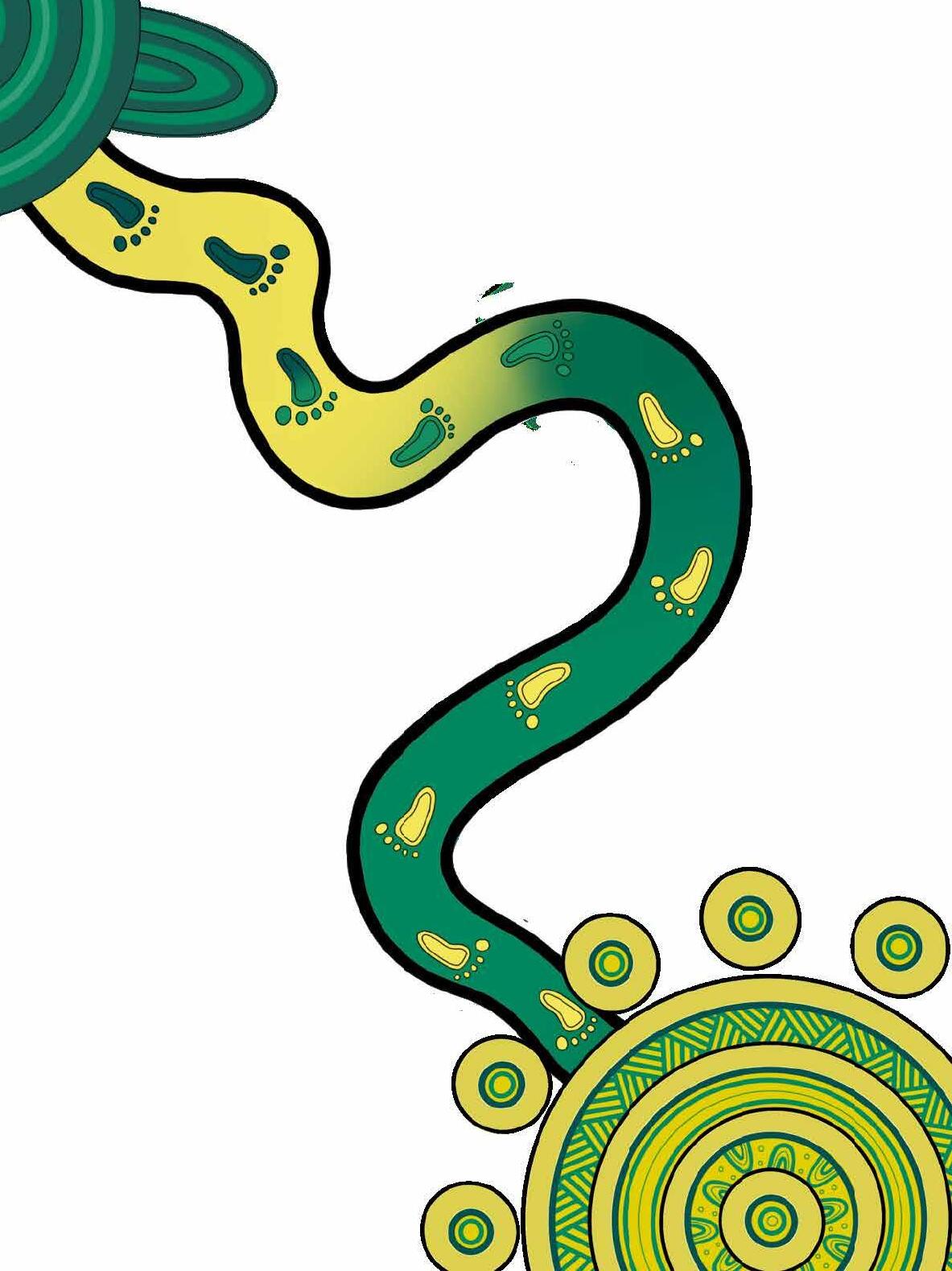
Our vision for reconciliation is that cricket is known as a place where we all belong. We will foster respectful and inclusive environments on and off the pitch, where equitable outcomes for Aboriginal and Torres Strait Islander peoples are delivered, cultures are celebrated, and histories are accepted.
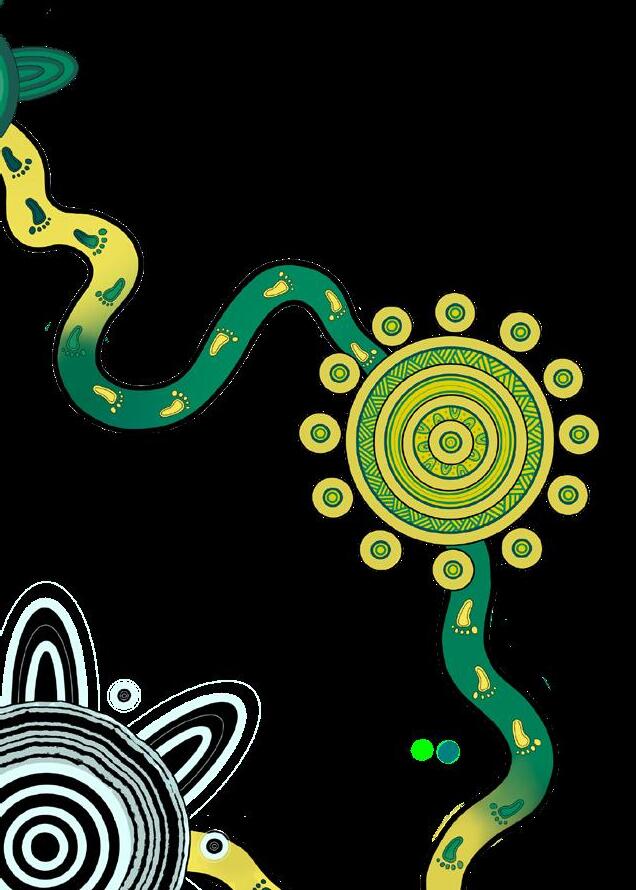

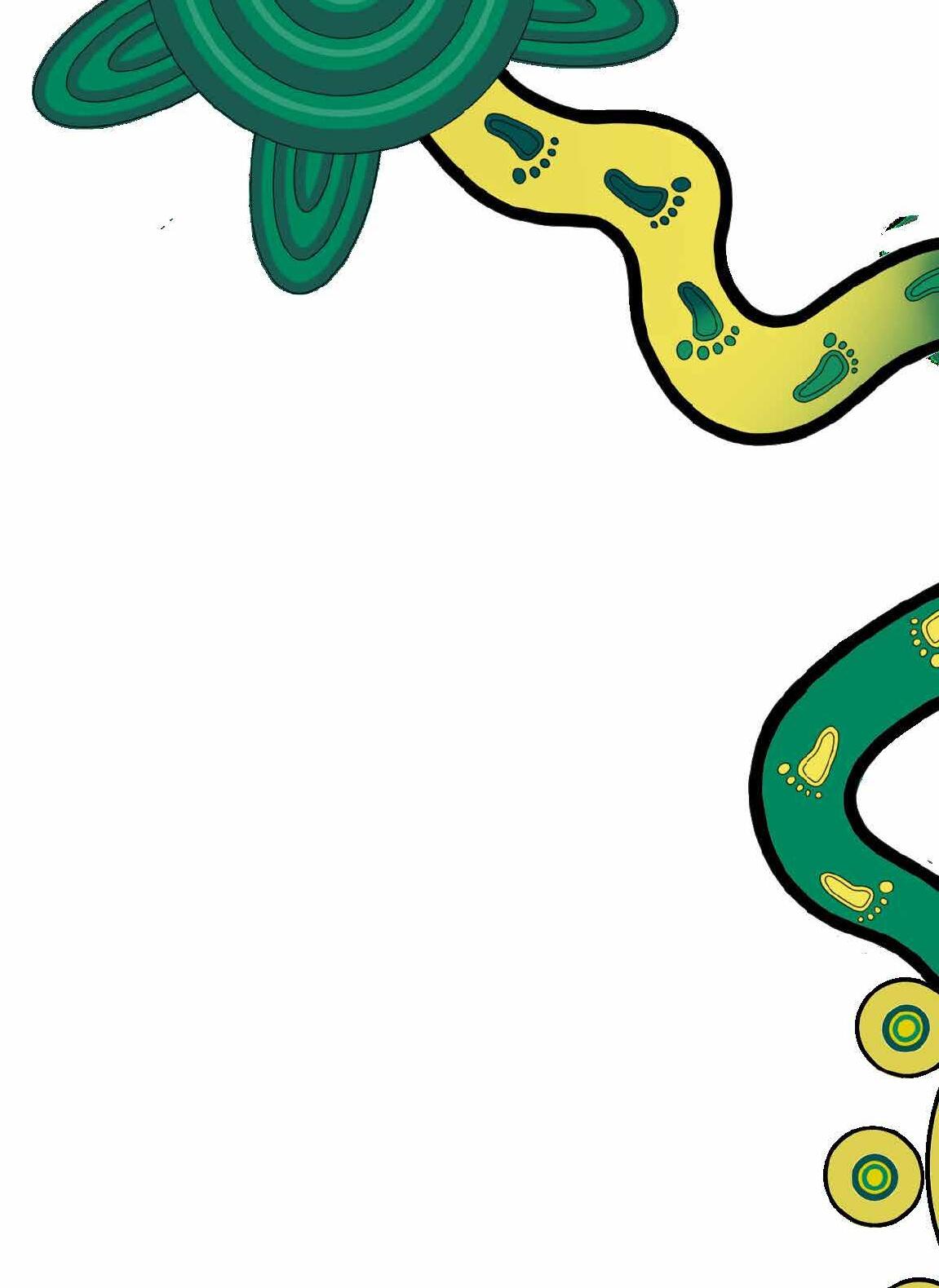
CA’s purpose is to unite and inspire everyone to love and play cricket and our vision is for cricket to be a sport for all that makes Australians proud. CA is the national governing body for cricket in Australia. Australian cricket is administered on behalf of its members, the six State and two Territory Associations. Cricket is Australia’s national sport with men’s and women’s teams that captivate the nation every summer and during international tours, while the Weber WBBL and KFC BBL have become two of the biggest domestic competitions in the country.
In 2023/24, more than 1.6 million people attended cricket in Australia as we move toward our strategic goal of attracting 3 million fans to games each summer, while a cumulative audience of 26 million watched our sport. More than half a million Australians participate in cricket each year (627,693 in 2023/24 cricket census), across a vast network of 4,000+ community clubs.
CA’s head office is located in Jolimont, in Naarm (Melbourne), Victoria. The National Cricket Centre is located in Meanjin (Brisbane), Queensland. CA also has an office in Warrane (Sydney), NSW and employees located throughout Australia.
At an international level, CA was a foundation member of cricket’s world governing body, the International Cricket Council (ICC) and is one of 12 ICC full members.


303
Employees at CA across the country including two people who identify as an Aboriginal and/ or Torres Strait Islander person.

15
Players in high performance pathway teams identify as an Aboriginal and/or Torres Strait Islander person.

2 6 3.75% 3


Aboriginal people play for Australia in Test teams.

Aboriginal and/or Torres Strait Islander men play in the BBL or Sheffield Shield.
2.4O 6
Aboriginal and/or Torres Strait Islander women play in the WBBL or WNCL.
Contractors who identify as an Aboriginal and/or Torres Strait Islander person. of registered Woolworths Cricket Blast participants identify as an Aboriginal and/or Torres Strait Islander person. of registered participants identify as an Aboriginal and/ or Torres Strait Islander person.


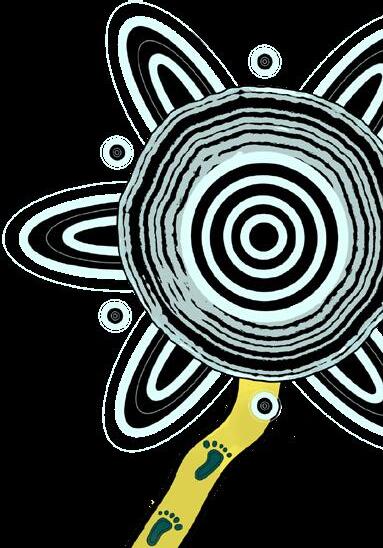
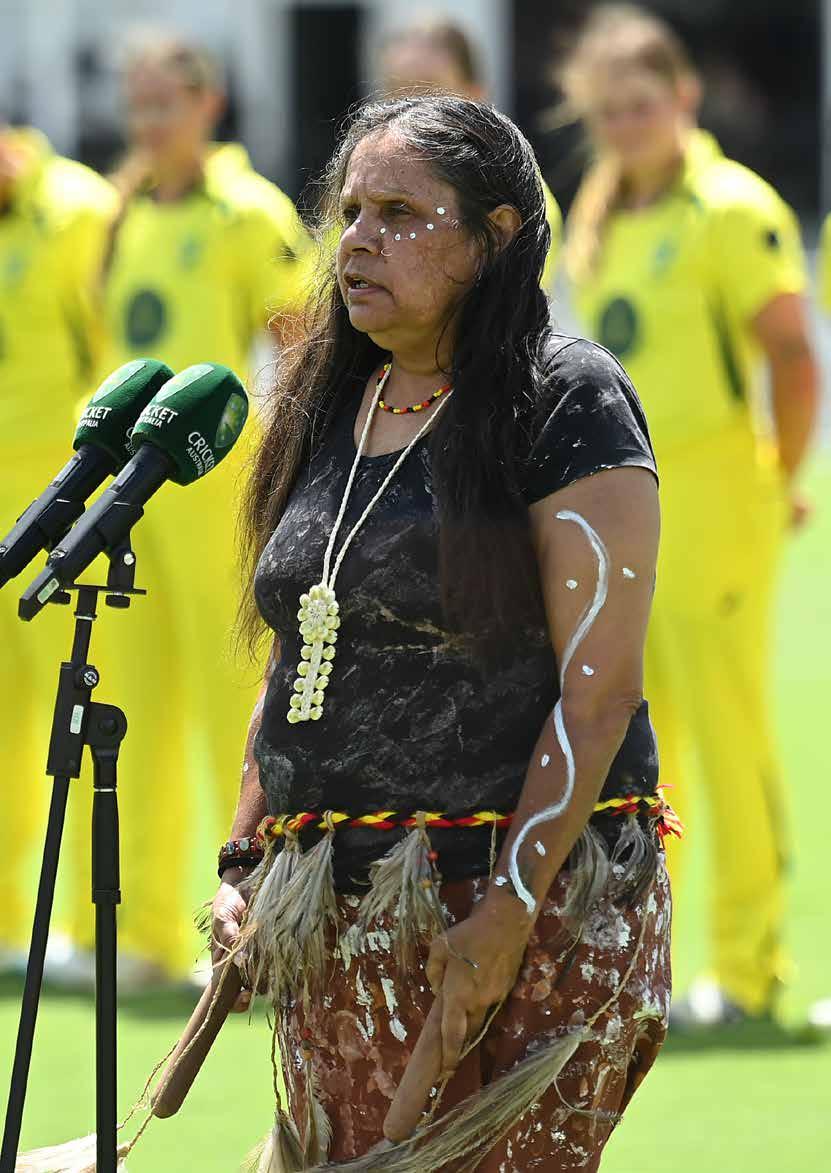
As part of the Australian Cricket Strategic Plan 2022-2027, we have outlined our commitment to strengthening our position as a sport for all.
This RAP is one of the four priority plans outlined in the Australian Cricket Strategic Plan. It is our third RAP and second Stretch. It documents our 10-year reconciliation journey and our commitment to accelerate our work to inspire and unite nonIndigenous Australians and Aboriginal and Torres Strait Islander peoples and to find common ground and connect through cricket, over the period 2024-2027.
Aboriginal and Torres Strait Islander peoples are integral to the Australian cricket story, past, present and future.
Cricket has a strong and historic relationship with Indigenous Australia. The 1868 tour of England by an all-Aboriginal team was the first overseas tour by an Australian sporting team and remains a highly significant moment in the annals of Australian sporting history.
CA acknowledges the importance of truthtelling about this tour in the context of contemporaneous colonial realities, and in a manner where Indigenous voices and perspectives are amplified. We have sought to do this through deepening relationships with descendants of the First XI, CA employees undertaking pilgrimages to Harrow in Western Victoria to connect with the First XI story, supporting artistic and media content about the First XI story and in communications when the Australian Men’s and Women’s Aboriginal XI squads undertook a 150 year commemorative tour of England.
Despite this unique heritage, we acknowledge cricket has not always included all Australians equitably, including Australia’s First Peoples, and we are committed to finding practical solutions.
These include:
• Recognising the importance of our cricket teams representing all of Australian society and the need to do more to increase representation of Aboriginal and Torres Strait Islander people at the highest levels our game.
• Celebrating the ongoing contributions of Aboriginal and Torres Strait Islander people to all aspects of cricket – whether as players, coaches, administrators, umpires, volunteers or fans.
• Acknowledging the four Aboriginal and Torres Strait Islander people to have represented Australia at Test level and ensuring they provide inspiration to others.
• Celebrating the growth of Aboriginal and Torres Strait Islander representation in the BBL and WBBL.
• Continuing to invest in Aboriginal and Torres Strait Islander participation at 5-12 year old level to foster greater participation throughout the game.
To ensure our RAP delivers on our commitments and vision, we undertook several activities to inform its design. These included:
Engagement and consultations to develop our RAP with Traditional Owners and Indigenous organisations to support potential partnerships. This included meeting and discussing our RAP with:
- Elders, coordinated through the Wurundjeri Woi-wurrung Cultural Heritage Aboriginal Corporation, the Traditional Custodians of the land on which CA’s Head Office is located; and
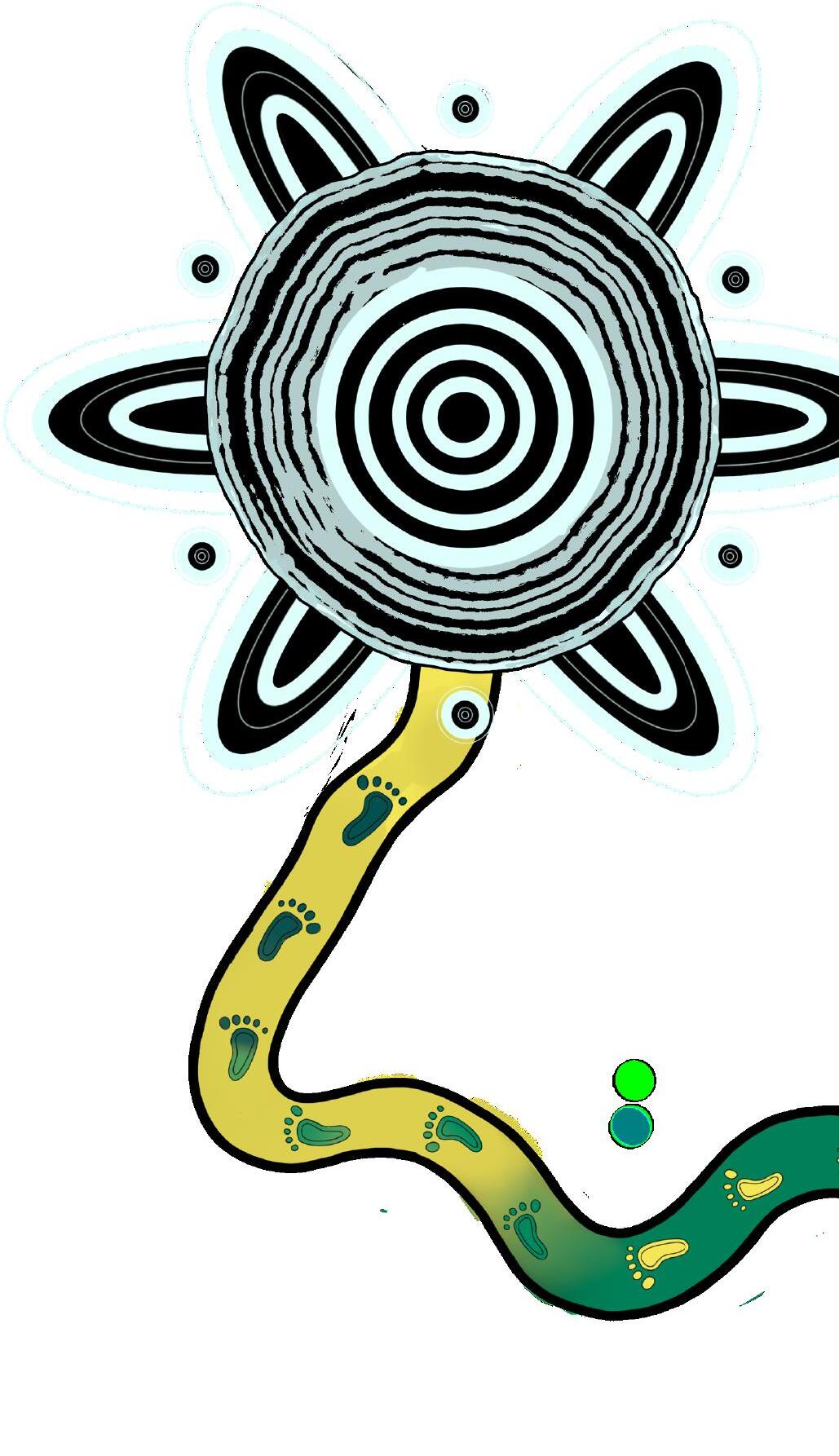
- A number of Aboriginal and Torres Strait Islander organisations that could support CA in our role as a national governing body for cricket in Australia.
• Conducted a RAP diagnostic through targeted CA employee interviews to understand progress and areas of opportunity to further reconciliation. Members of CA’s RAP Working Group and Diversity & Inclusion Working Group participated in these consultations. The results were used to validate and inform CA’s strengths, opportunities and priorities in the context of Reconciliation Australia’s RAP framework.
• Held a strategic RAP Visioning Workshop facilitated by KPMG Indigenous Services, with representatives from CA’s RAP Working Group, CA’s National Aboriginal and Torres Strait Islander Cricket Advisory Group and employees from other State and Territory Cricket Associations.
Conducted review and refinement workshops with:
- CA Board;
- CA Executive Team;
- CA’s National Aboriginal and Torres Strait Islander Cricket Advisory Group;
- Employees from State and Territory Cricket Associations with RAP and/or reconciliation related responsibilities;
- National Indigenous Men’s and Women’s Teams;
- Players, coaches and mentors of teams participating in the National Indigenous Cricket Championships; and
- RAP Ambassadors.
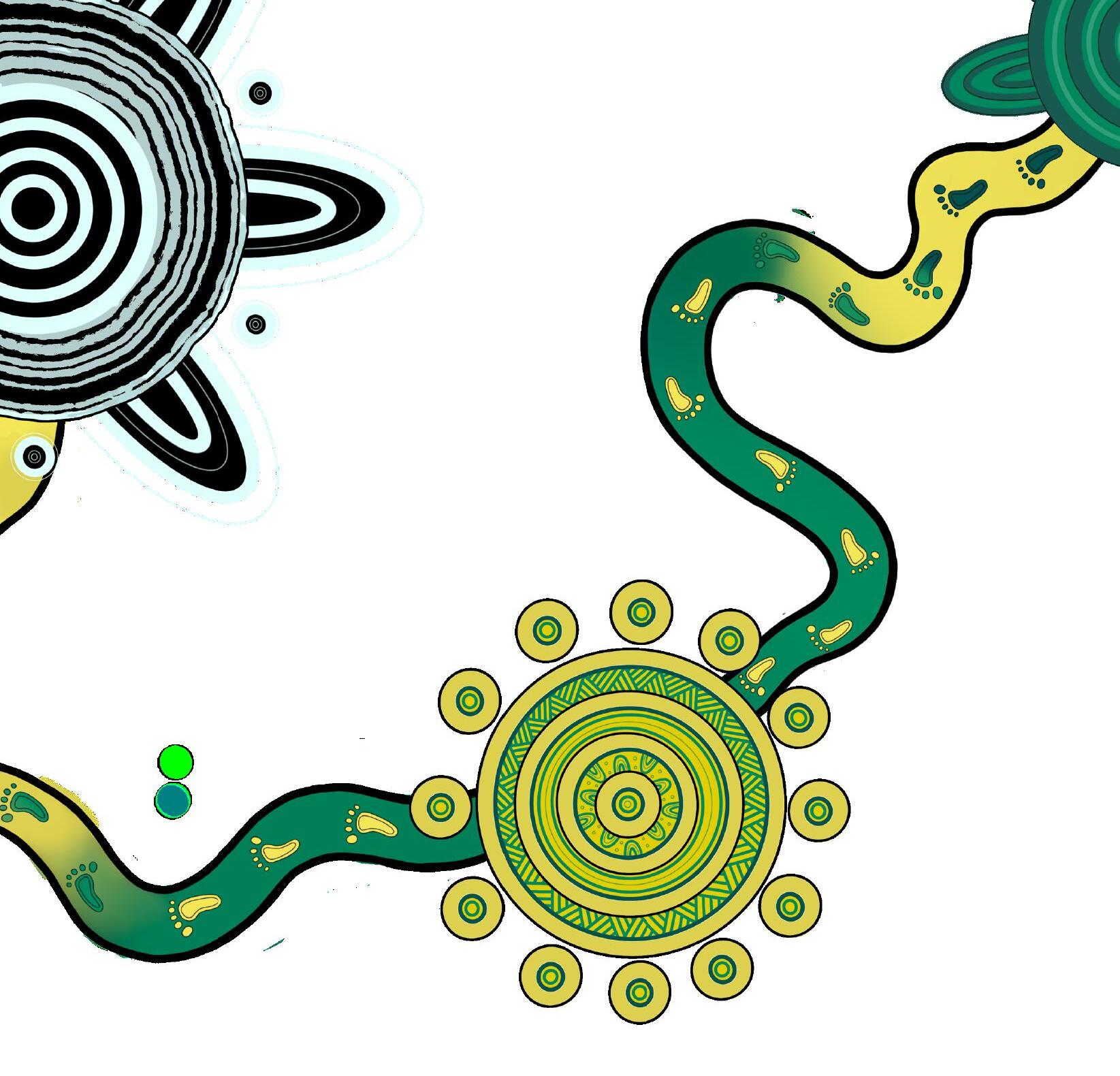
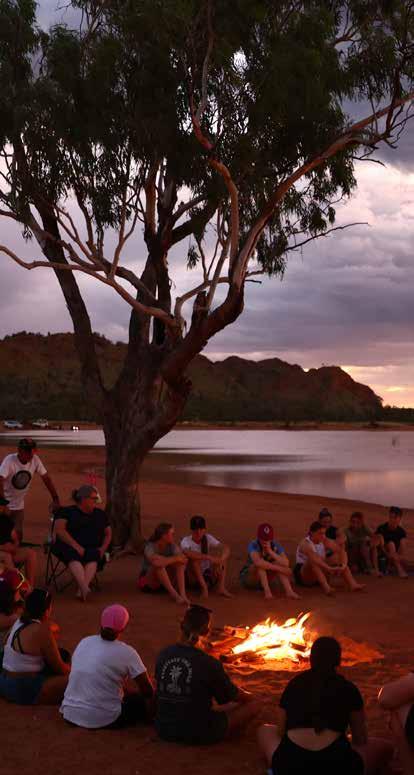

CA’S NATIONAL ABORIGINAL AND TORRES STRAIT ISLANDER CRICKET ADVISORY GROUP
An advisory group established under the CA Board Charter to provide, among other things:
• Guidance to CA on issues impacting Aboriginal and Torres Strait Islander peoples in keeping with the spirit of the Uluru Statement of the Heart;
Strategic advice on action aimed at enhancing the connection between First Nations peoples and the game of cricket through CA’s RAP;
• Leadership and advice on developing and delivering CA’s RAP with impact and respect; and
Assist CA to lead a dialogue aimed at educating the wider community on issues impacting First Nations peoples.
CA’S NATIONAL ABORIGINAL AND TORRES STRAIT ISLANDER CRICKET ADVISORY
NAME POSITION
Justin Mohamed (Gooreng Gooreng)
Greg Rowell
Jason Smith (Wangur Yindinji)
Andrew Gordon (Kamilaroi-Wailwan)
Paul Stewart (Taungurung)
Tanya McGregor (Yaruwu)
Guy Grey (Palawa)
Stephen Goodall (Nyoogar)
Adam Williams (Wongaibon, Wiradjuri and Ngunnawal)
Rick Fletcher (Djukun)
Natalie Ahmat (Mudburra and Wagadagum)
Sarah Adam-Gedge
Vanessa Guthrie
Allison Robison
Megan Barnett-Smith
Matt Lucas
NATSICAG Co-Chair (Independent Member)
NATSICAG Co-Chair and CA Director
Queensland Cricket Aboriginal and Torres Strait Islander Cricket Advisory Member
Cricket NSW Aboriginal Cricket Advisory Member
Cricket Victoria Aboriginal Cricket Advisory Member
SACA Aboriginal Cricket Advisory Member
Cricket Tasmania Aboriginal Cricket Advisory Member
Interim WACA Aboriginal Cricket Advisory Member
Cricket ACT Aboriginal Cricket Advisory Member
NT Cricket Aboriginal Cricket Advisory Member
Independent Member
CA Director
CA Director
CA Executive Team Member
CA Senior Manager responsible for Social Impact & Sustainability
CA Diversity & Inclusion Specialist
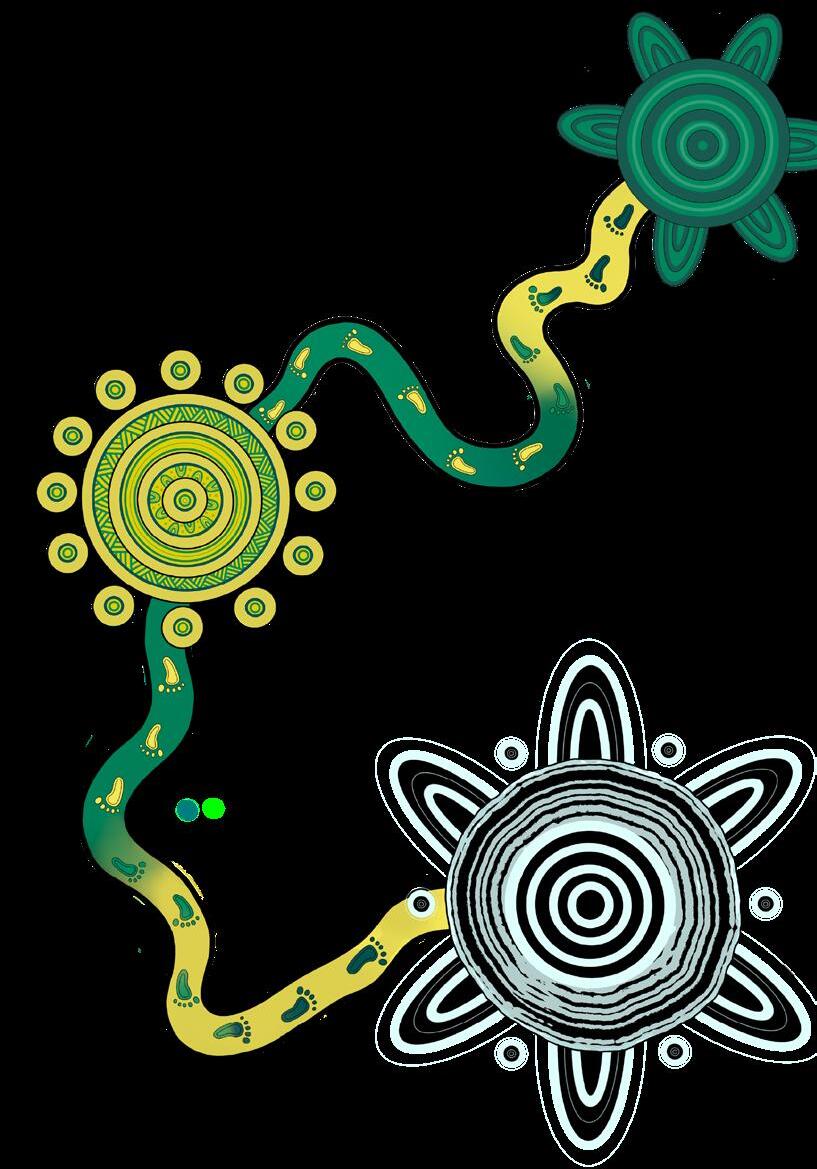
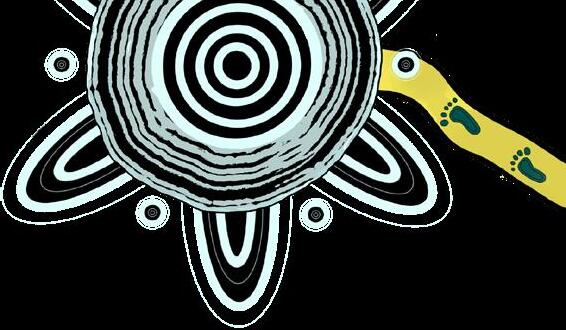
CA’S NATSICAG MEETS FOUR TIMES A YEAR. AFTER EACH MEETING:
• The CA Co-Chair (who is a CA Board Member) updates the CA Board, including outlining any matters requiring CA Board Action or approval; and Each representative
CA incorporated Aboriginal and Torres Strait Islander representation on its internal RAP Working Group by calling for expressions of interest from employees who identify as an Aboriginal and/or Torres Strait Islander person to consider joining out internal RAP Working Group. Those who expressed an interest were then invited to be involved.
NAME POSITION
Allison Robison
Don Elliott
Megan Barnett-Smith
James Quarmby
Sonya Thompson
Vanessa Foo
Teresa Basile
Shiraz Ruwaim
Margot Harley
Penelope Archer
Annie Clare
Emily Holyoake (Wiradjuri)
Harrison Orchard
Carolyn Rogers
RAP Champion + Executive General Manager of People & Culture
General Manager, Australian Cricket Technology
Head of Social Impact & Sustainability
Head of Participation
Head of National Development
Head of Partnerships
Head of Brand & Marketing
Head of Procurement
Head of Competition Delivery & Strategy
Senior Event Experience Director
Senior Customer Data Strategy Manager
Cyber Governance Risk and Compliance CR Specialist
Digital, Data & Insights Lead
Senior Internal Communications & Stakeholder Partner
Damon Egan (Gunditjmara)
Ashley Renouf (Gubbi Gubbi)
Jeff Cook (Kamilaroi)
CA Department
People & Culture
Finance, Legal & Technology
People & Culture
Community Cricket & Capability
High Performance & National Teams
Broadcast & Commercial
Digital, Marketing & Communications
Finance, Legal & Technology
Big Bash Leagues
Event Operations & Experience
Digital, Marketing & Communications
Finance, Legal & Technology
Digital, Marketing & Communications
Digital, Marketing & Communications
Captain of the Australian Men’s Aboriginal and Torres Strait Islander Team that toured Vanuatu in 2023
Coach of the National Aboriginal and Torres Strait Islander Women’s Team
Coach of the National Aboriginal and Torres Strait Islander Men’s Team
EXTERNAL RAP ADVISORY BODY:
KMPG Indigenous Services
We are proud of the work we have done externally across our game and in the communities where we can have an impact. Many of the ways we show respect for Aboriginal and Torres Strait Islander histories, cultures and communities went above and beyond the actions under our last RAP.
For example, observing cultural protocols and showcasing Aboriginal and Torres Strait Islander cultures through our major events, encouraging players to connect with country through barefoot circle ceremonies, acknowledging and celebrating Aboriginal and Torres Strait Islander Peoples’ ongoing contributions to cricket and honouring cricket’s unique heritage with Aboriginal and Torres Strait Islander people through the First XI have become embedded in what we do.
We understand we must apply the same level of intent and energy as we do for external facing activities, to our internal activities to ensure continuous improvement in engagement, cultural learning, employment and procurement strategies.
We have learnt our RAP is our roadmap to build trusted relationships with Aboriginal and Torres Strait Islander peoples, communities, and organisations. We have identified the need to establish the right, mutually beneficial partnerships with Aboriginal and Torres Strait Islander communities and organisations that will deliver sustainable outcomes for cricket and cultivate deeper and genuine relationships with Traditional Owners.
We understand engaging employees throughout CA in reconciliation is key to our success.
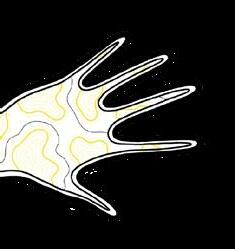
We committed to 104 deliverables under our last RAP. The challenges presented by the coronavirus pandemic created considerable barriers in delivering on all of these commitments. Barriers included reduced access to Aboriginal and Torres Strait Islander communities during the many lockdowns experienced through the pandemic, which limited our ability to consult. CA also experienced reductions in resourcing due to a period of employee stand downs and retrenchments, and a significant increase in the complexity of delivering the core business of cricket due to lockdowns, travel restrictions and biosecurity requirements. These took a heavy toll on the available financial and people resources needed for delivery on all actions.
We have learnt the importance of implementing a more targeted approach focusing on fewer, more strategic actions that will deliver maximum, sustainable impact.
We have learnt that we must embed responsibility for delivering on RAP actions across the whole business, so delivery is not impeded by changes in resourcing. In response to these learnings, CA has embedded actions relating to our RAP in the annual organisation performance scorecard and implemented a regular cadence of status reporting against our committed actions with both the Executive and Board. An Executive sponsor has been appointed to oversee progress of our RAP actions, and a cross-functional working group has been established to champion each commitment.
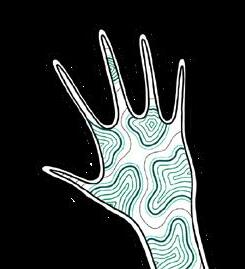
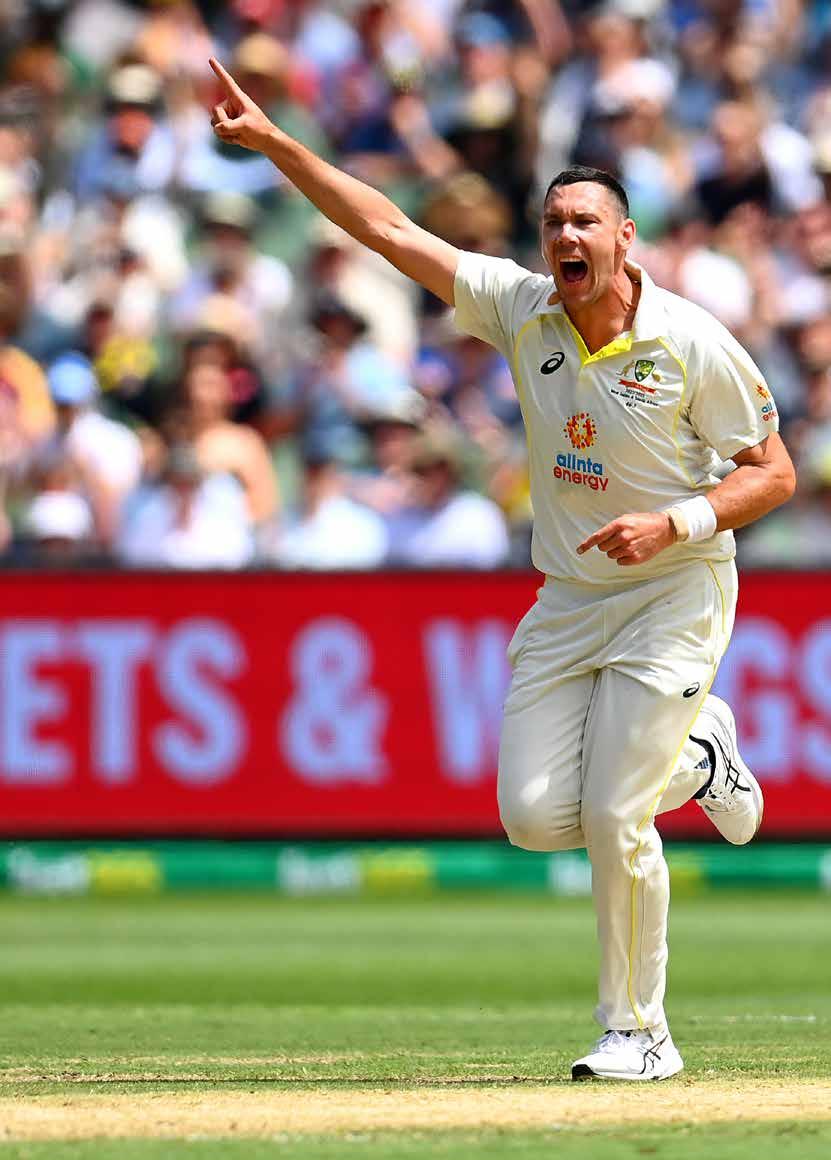
TARGETED FUNDING TO INCREASE PARTICIPATION AMONG ABORIGINAL AND TORRES STRAIT ISLANDER 5–12YEAR OLDS
Increasing participation among 5–12-year-olds is a key part of Australian Cricket’s five-year strategy and we want to ensure Aboriginal and Torres Strait Islander peoples share the same opportunities as all other Australians.
• While there have been barriers to increasing participation in this age group in recent years (including the COVID pandemic) we have initiated measures to ensure long-term increases.
• We are doubling the amount of investment dedicated to Australian and Torres Strait Islander participation from 5% to 10% to create programs that will ensure greater engagement with individuals and communities.
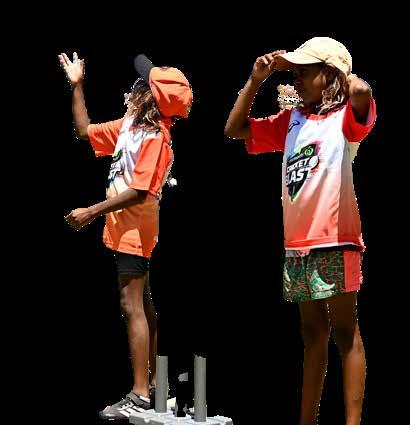
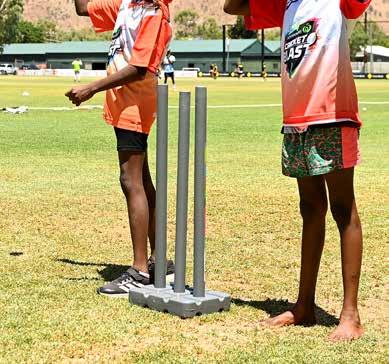
CA’s commitment to fostering elite development for Aboriginal and Torres Strait Islander players was enhanced through the Australian Women’s and Men’s Indigenous teams tour of Vanuatu in May 2023 with PacificAus Sports and the establishment of a three-year partnership with the Melbourne Cricket Club (MCC) Foundation to provide a high-performance training camp and games at the MCG annually.
• These opportunities have ensured the National Indigenous Cricket Championships are not only a celebration of Indigenous cricket, but a significant talent identification opportunity with the possibility of selection for national teams and training camps.
• We recognise that only four players who identify as Aboriginal and/or Torres Strait Islander have played Test cricket for Australia, and we want to increase opportunities for players from the two cultures and ease their transition through the pathway process.
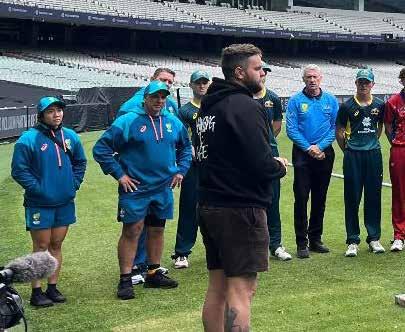
• The story of the First XI’s tour of England in 1868 is one of the most significant and powerful in Australian sport, providing insight into the complex relationship between Aboriginal and Torres Islander peoples, colonists, our game, and the extraordinary window of time in which it all occurred. Despite travelling all the way to England, the Aboriginal Protection Act which came into effect a year later regulated the lives of Aboriginal people including restricting their movements.
• Unaarrimin (Johnny Mullagh) was a star of the team that played 47 matches with 14 wins, 14 losses and 19 draws. The team also consisted of Bluuchanach (Bullocky), Grougarrong (James “Mosquito“ Couzens), Pripumuarraman (Charley Dumas), Arrahmunijarrimun (Peter), Yangendyinanyuk (Dick-a-Dick), Brimbunyah (Red Cap), Lytejerbillijun (Jim Crow), Ballrinjarrimin (Sundown), Zellanach (Johnny Couzens) and Bonnibarngeet (Tiger), captained and coached by Charles Lawrence.
• By commemorating the memory of the team - through awarding an annual medal for the best player in the Boxing Day Test at the MCG, we seek to strengthen connections with cricket’s past role models whose performances
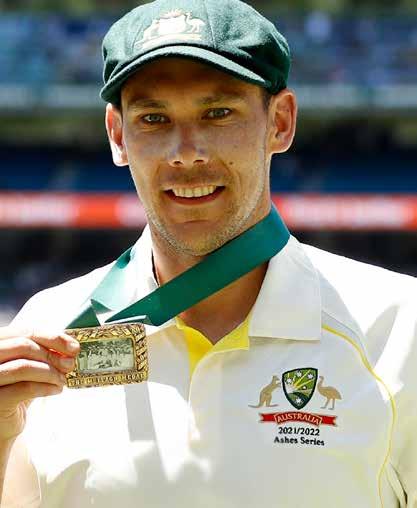
and stories inspire our nation, demonstrate our commitment to historical acceptance and inspire Aboriginal and Torres Strait Islander Peoples to love and strive to play on this stage.
• Scott Boland, the fourth Aboriginal person to play Test cricket for Australia won the Mullagh Medal in 2021 for taking 6 wickets for 7 runs. It was a significant moment in Australian Cricket history and a reminder of the work required to ensure more Aboriginal and Torres Strait Islanderpeoples are represented in all levels of game.
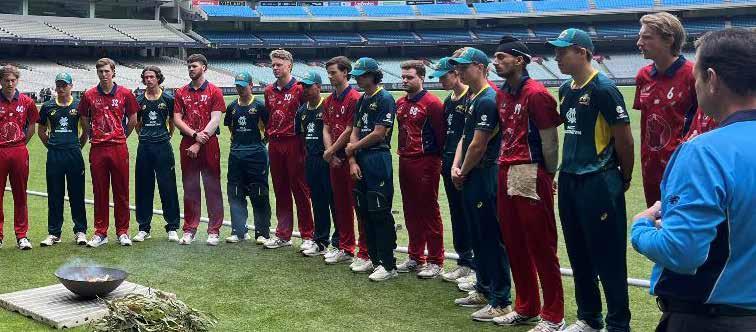
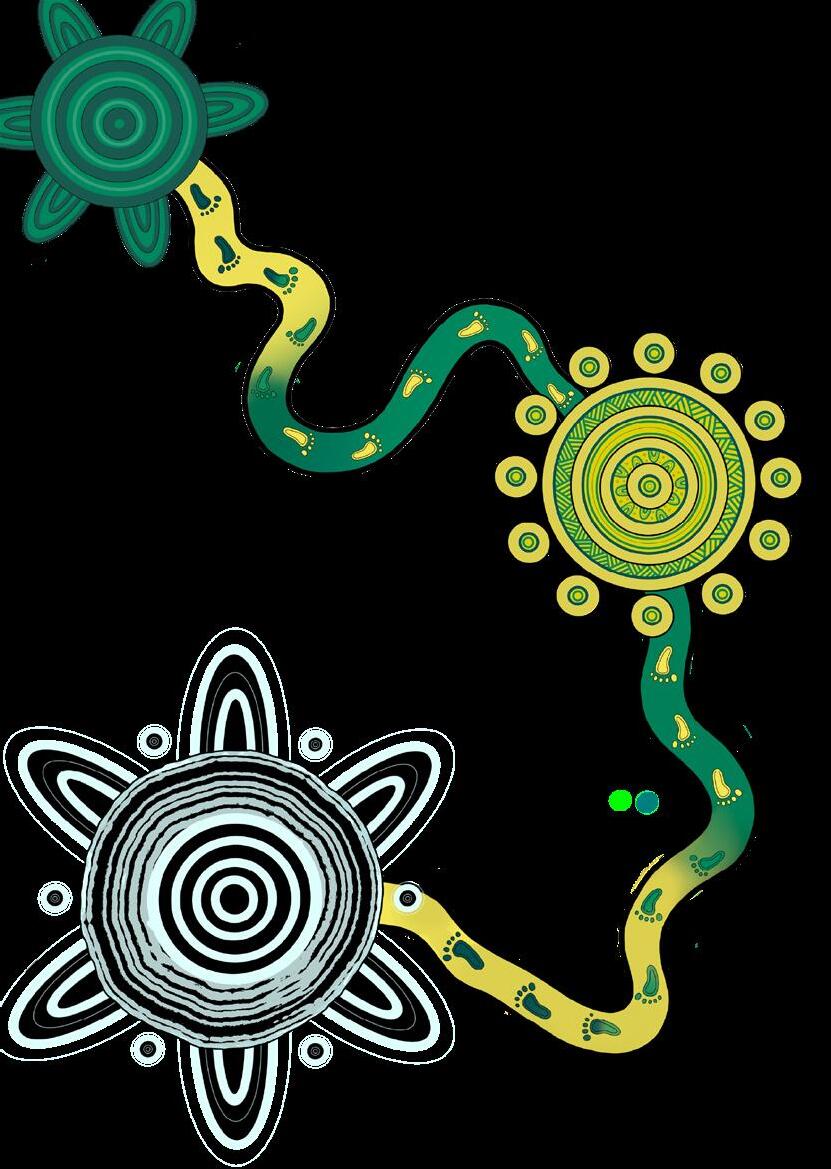
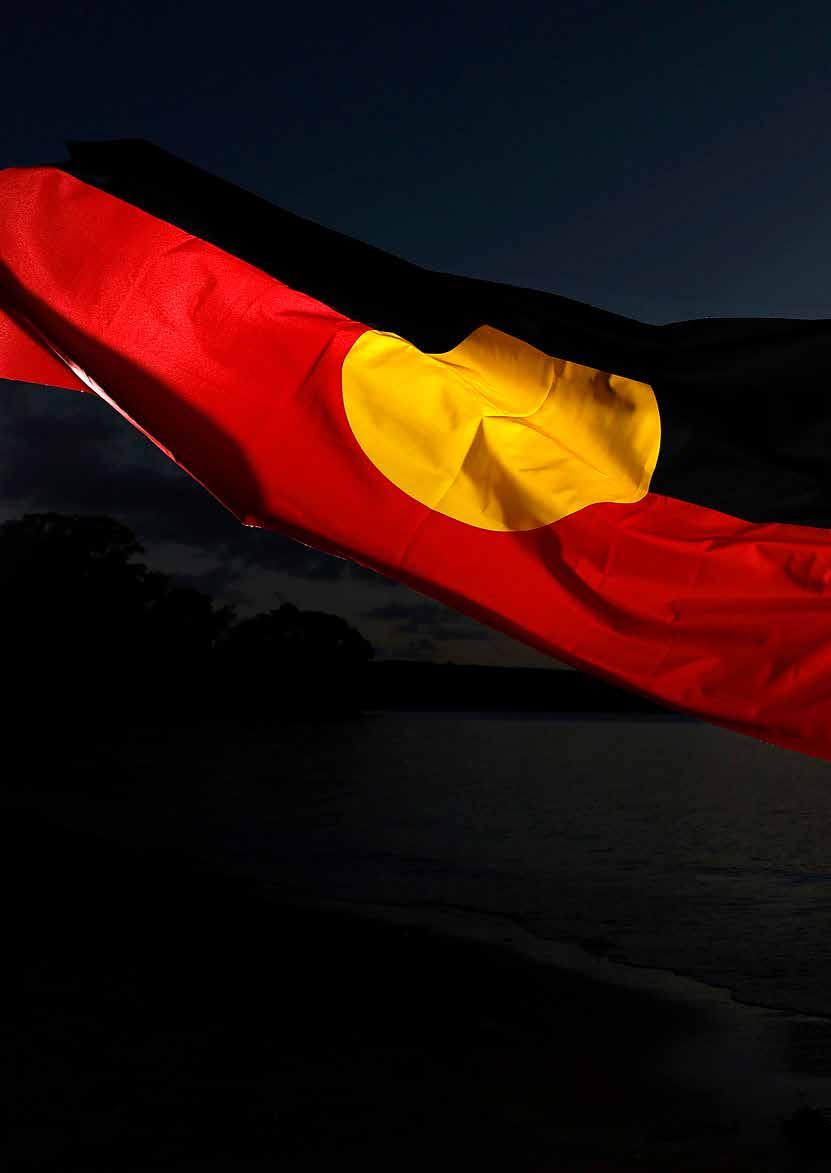

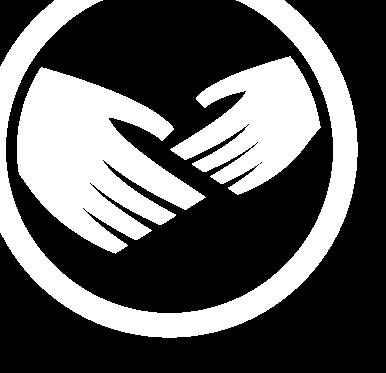
CA’s purpose is to unite and inspire everyone to love and play cricket. Our RAP vision is to ensure Aboriginal and Torres Strait Islander peoples and communities feel a sense of belonging and pride in every aspect of our game. Strengthening genuine relationships with Aboriginal and Torres Strait Islander peoples, communities and organisations is key to delivering on this ambition.
FOCUS AREA:
Relationships align to the following strategic priorities in Australian Cricket’s Strategic Plan 2022-2027:
• Purpose-Led Partnerships
• Inspirational players and teams
• Champion inclusion, positive social impact, and sustainability
1. Establish and maintain mutually beneficial relationships with Aboriginal and Torres Strait Islander stakeholders and organisations.
2. Build relationships through celebrating National Reconciliation Week (NRW).
Meet with local Aboriginal and Torres Strait Islander stakeholders and organisations to continuously improve guiding principles for engagement.
Review, update, and implement an engagement plan to work with Aboriginal and Torres Strait Islander stakeholders.
Establish and maintain 3 formal two-way partnerships to build meaningful and sustainable relationships in Aboriginal and Torres Strait Islander communities with the following Aboriginal and Torres Strait Islander organisations relevant to our sphere of influence:
- NITV;
- Ashleigh Gardner Foundation; and
- An Aboriginal and Torres Strait Islander led wellbeing service provider.
Circulate Reconciliation Australia’s NRW resources and reconciliation materials to all employees.
RAP Working Group members to participate in two external NRW events.
• Encourage and support employees and senior leaders to participate in at least one external event to recognise and celebrate NRW.
• Organise at least one organisation wide internal NRW event each year, and invite all employees from all State and Territory Cricket Associations, to further educate Australian Cricket employees on our RAP.
Co-design and co-deliver a NRW event with CA commercial and/or social impact partners to increase further awareness of reconciliation within our collective sphere of influence.
Register all our NRW events on Reconciliation Australia’s NRW website
February, May, August, November, annually
December 2024
July 2027
May, 2025, 2026, 2027
27 May- 3 June, 2025, 2026, 2027
27 May- 3 June, 2025, 2026, 2027
27 May- 3 June, 2025, 2026, 2027
27 May – 3 June 2027
Head of Social Impact & Sustainability
Head of Social Impact & Sustainability
Head of Social Impact & Sustainability
May 2025, 2026, 2027
Diversity & Inclusion Specialist
Executive General Manager, People & Culture
Diversity & Inclusion Specialist
Diversity & Inclusion Specialist
Diversity & Inclusion Specialist
Executive General Manager, People & Culture
3. Promote reconciliation through our sphere of influence.
A representative from the Reconciliation Action Plan Working Group to attend at least two quarterly Reconciliation Australia RAP Leadership Gatherings per year.
Develop and implement an employee engagement strategy to raise awareness of reconciliation across our workforce.
Communicate our commitment to reconciliation publicly, by:
- Launching this RAP to employees, CA partners, State & Territory Association CEOs and Chairs, community cricket clubs, cricket fans, the media and directly to the public via CA’s assorted digital channels;

- Including a dedicated RAP focussed page in CA’s Annual Report each year;
- Creating a RAP focussed page on cricket.com.au and CA’s intranet;
- Implementing Public Relations activities to support RAP actions and initiatives to amplify our continued commitment and progress made to the public; and
- Promote RAP initiatives and outcomes to the cricket community through our direct eDM channels –cricket clubs via “The Wicket” for (3.6k reach) and our dedicated cricket fans who are ‘active’ users (638k) on cricket.com.au, play.cricket.com.au, CA Live app and the Big Bash app.
Implement strategies to positively influence our external stakeholders to support CA’s reconciliation outcomes and advance their own reconciliation journey, by:
- Exchanging ideas and sharing positive experiences;
- Sharing lessons and learnings from challenges with external stakeholders where relevant;
- Encouraging involvement of external partners within CA run and led reconciliation initiatives;
- Including CA relevant reconciliation messaging in partner facing presentations and communications; and
- Ensuring that all external stakeholders are aware of CA’s RAP journey and key actions, to help build support.
• Collaborate with 8 RAP organisations and other like-minded organisations to implement innovative approaches to advance reconciliation, including: Cricket NSW, Queensland Cricket, WA Cricket Association, South Australian Cricket Association, Cricket Tasmania, Cricket Victoria, Cricket ACT, NT Cricket.
June 2025, 2026, 2027
December 2024
November 2024, May 2025, 2026
December 2025
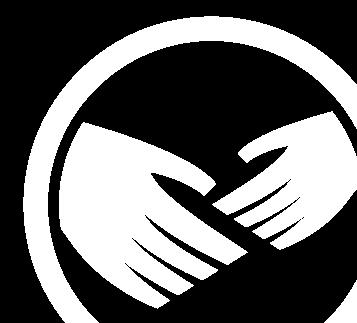
November 2024, 2025, 2026
Include opportunities to collaboratively advance aligned reconciliation actions and deliverables as an annual agenda item for the Australian Cricket Leadership Team, which includes CEOs of all State and Territory Cricket Associations.
Implement a quarterly communications plan demonstrating our commitment to reconciliation to all CA employees. The plan includes circulating resources, materials and opportunities for employees to engage in cultural, learning and/or relationship building experiences with Aboriginal and Torres Strait Islander peoples, communities and organisations, leading into major periods such as:
- 26 January ;
- National Reconciliation Week;
- NAIDOC Week;
- the National Indigenous Cricket Development Camp; and
- the National Indigenous Cricket Championships.
In collaboration with NATSICAG, develop a place-based approach and guide to engage with Traditional Owners to respectfully deliver cricket on 26 January.
Encourage Big Bash Clubs, State and Territory Cricket Associations and Premier and Community cricket clubs to host and align the scheduling of annual Reconciliation celebration matches.
Support cricket clubs with training materials and guides to improve inclusive behaviours at all levels, including:
- ‘How to host a Reconciliation Celebration Round’ guide; and
- Case studies on local clubs and cricketers who are showcasing Reconciliation through cricket.
Visually promote CA’s reconciliation commitment by incorporating Aboriginal and/or Torres Strait Islander artwork into the:
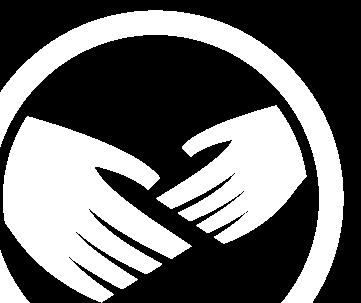
November 2024, 2025, 2026
Chief of Staff
4. Promote positive race relations through anti-discrimination strategies.
- Season 2025/26 Australian Men’s and Women’s team playing kits; and
- Season 2024/25 and 2025/26 umpire uniforms for the Big Bash Leagues.
Continuously improve HR policies and procedures concerned with antidiscrimination.
Engage with Aboriginal and Torres Strait Islander employees and/or Aboriginal and Torres Strait Islander advisors to continuously improve our antidiscrimination policy.
December 2025
Head of Social Impact & Sustainability
December 2025
December 2024
July 2027
December 2025
General Manager, Big Bash Leagues
Head of Participation, Community in Cricket Strategic Partnership Integration Lead, Big Bash Leagues
Diversity & Inclusion Specialist
May 2025, 2026, 2027
December 2025
Partnerships and Events & Operations Teams
Executive General Manager, People & Culture
Diversity & Inclusion Specialist
Enhance the Respect@Work Policy (which covers bullying, harassment & discrimination) through the development of targeted case studies, information and resources on racism, including the effects of racism.
Conduct regular awareness campaigns on everyday racism, highlighting reporting avenues and processes.
• Promote 1300 287 432 as our Aboriginal & Torres Strait Islander Employee Assistance Program across all offices.
Provide ongoing education to senior leaders and managers on the effects of racism, including:
- face to face training on understanding attitudes or stereotypes that unconsciously alter perceptions or understanding of experiences, affecting behaviours, interactions and decision making; and
- embedding it into induction processes for new senior leader and managers.
Senior leaders to publicly support anti-discrimination campaigns, initiatives and stances against racism, by incorporating a player narrated anti-discrimination message at all International Cricket events during the Australian summer of cricket.
December 2025
5. Increase awareness of cricket’s unique connection with Aboriginal peoples via the 1866 and 1868 First XI teams.
• Meet with descendants of First XI to continually improve guiding principles for truth-telling associated with the First XI story.
• Continue to award the Mullagh Medal to the player of the match at the Boxing Day Test, in tribute to Unaarrimin (Johnny Mullagh, Wotjobaluk) and the First XI.
Visually promote cricket’s unique connection with Aboriginal peoples by enabling community and premier clubs to have the option to engage with the First XI story, the artist of the Walkabout Wickets logo and incorporate it on the lapel of their kit.
Support the development of media content and/or learning resources that amplifies the story of the First XI in a manner that centres truth-telling and First Nations voices through descendants of those team members.
December 2025
December 2025
December 2025
November –
February 2024-5, 2025-6, 2026
December 2024, 2025, 2026
December 2024, 2025, 2026
July 2027

July 2027

Recognising, respecting, and upholding Aboriginal and Torres Strait Islander cultures, histories, knowledge, rights, and voices is central to our purpose of uniting and inspiring Australians through cricket.
We are committed to enriching our cricket community with a culture that acknowledges our complex history, dedicates itself to truth-telling, celebrates the continuing contributions of Aboriginal and Torres Strait Islander people to our game and represents equality and equity.
FOCUS AREA
Respect aligns to the following strategic priorities in Australian Cricket’s Strategic Plan 2022-2027:
• Brilliant Experiences
• Inspirational players and teams Champion inclusive, positive social impact, and sustainability
6. Increase understanding, value and recognition of Aboriginal and Torres Strait Islander cultures, histories, knowledge, and rights through cultural learning.
Implement and communicate a cultural learning strategy for our staff and the Australian Men’s and Women’s International Team based on a review of cultural learning needs and in consultation with Traditional Owners and/or Aboriginal and Torres Strait Islander advisors.
• Commit all RAP Working Group members, HR managers, senior executive group and all new staff to undertake formal and structured cultural learning.
• All staff undertake formal and structured cultural learning with an external provider, including:
- 100% online learning;
- 100% of employees having access to external providers learning resources;
- 25% face to face session; and
- 25% cultural experience activity.
7. Demonstrate respect to Aboriginal and Torres Strait Islander peoples by observing cultural protocols.
Increase understanding of the purpose and significance behind cultural protocols, including Acknowledgement of Country and Welcome to Country protocols across CA’s employees, Australian Men’s and Women’s International Teams’ and visiting International Teams’ by:
- Inviting employees and Teams to participate in a private barefoot ceremony prior to match commencement with an Elder from the community on whose Country the match is being played, to learn about the culture of the people of that Country;
- Providing a briefing document to Team Managers to share with Teams about why cultural protocols are featured at matches an d events hosted by CA;
- Including information about why cultural protocols are featured at matches and events hosted by CA on cricket.com.au; and
December 2025
July 2027
July 2027
December 2025 Head of
- Including information about cultural protocols on a dedicated RAP focussed page on CA’s intranet, encouraging employees to watch a pre-recorded online training session to learn why and how to develop a personalised and meaningful Acknowledgement of Country.
• Implement and communicate a cultural protocol document (tailored for all local communities we operate in), including protocols for Welcome to Country and Acknowledgement of Country. This document will:
- Be launched and included in the communications plan for this RAP;
- Be publicly accessible on cricket.com. au and to all CA employees, housed on a dedicated RAP focussed page on CA’s intranet and includes the:
- International matches and events hosted by CA at which a local Traditional Owner or Custodian is to be invited to provide a Welcome to Country or other appropriate cultural protocols each year;
- Big Bash Leagues matches at which a local Traditional Owner or Custodian is to be invited to provide a Welcome to Country or other appropriate cultural protocols each year; and
- Other matches and events hosted by CA that commence with an Acknowledgement of Country or other appropriate protocols.
Employees and senior leaders provide an Acknowledgement of Country or other appropriate protocols at all public events.
Display at least one Acknowledgment of Country plaque in each CA managed facility.
Update our existing Acknowledgement of Country statement to include our commitment to reconciliation in CA email signatures and all CA media releases.
December 2025
8. Engage with Aboriginal and Torres Strait Islander cultures and histories by celebrating NAIDOC Week.
RAP Working Group to participate in an external NAIDOC Week event.
• Review HR policies and procedures to remove barriers to employees participating in NAIDOC Week.
Support all employees to participate in at least two NAIDOC Week events in our local area.
In consultation with Aboriginal and Torres Strait Islander stakeholders, support at least one external NAIDOC Week event each year.
November, 2024, 2025, 2026
November 2024
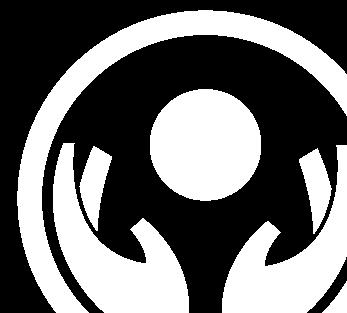
December 2024
First week in July 2024, 2025, and 2026
December 2024, 2025
First week in July 2024, 2025, and 2026
First week in July 2024, 2025, and 2026
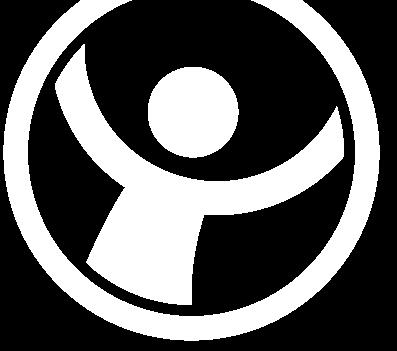
Enriching of our workforce with diverse perspectives through Aboriginal and Torres Strait Islander employment and business growth is central to driving innovation, forging meaningful connections with Aboriginal and Torres Strait Islander communities and achieving sustainable growth and mutual prosperity.
FOCUS AREA
Opportunities aligns with the following strategic priorities in Australian Cricket’s Strategic Plan 2022-2027:
• Attract kids (ages 5-12) and families from all backgrounds to inspire a lifelong love of cricket
• Enhance our leading international and domestic competitions, systems and programs that develop great players, coaches and match officials
• Inspiring more play by supporting volunteers and ensuring cricket is fun, accessible and welcoming for everyone
People, culture & capability
For-purpose-partnerships
9. Improve employment outcomes by increasing Aboriginal and Torres Strait Islander recruitment, retention and professional development.
10. Increase Aboriginal and Torres Strait Islander supplier diversity to support improved economic and social outcomes.

Engage with Aboriginal and Torres Strait Islander employees to consult on the effectiveness of our recruitment, retention, and professional development strategy.
Review and update an Aboriginal and Torres Strait Islander recruitment, retention, and professional development strategy.
Advertise job vacancies to effectively reach Aboriginal and Torres Strait Islander stakeholders.
• Review HR and recruitment procedures and policies to remove barriers to Aboriginal and Torres Strait Islander participation in our workplace.
• Target recruitment and professional development to ensure Aboriginal and Torres Strait Islander peoples represent 3% of management and senior level positions as well as 3% of overall employee numbers.
Develop and implement emerging leaders’ program for Aboriginal and Torres Strait Islander employees to progress to management and senior management positions.
Implement a mentoring program for employees identifying as an Aboriginal and/ or Torres Strait Islander person, to connect First Nations employees with leaders across the broad Aboriginal and Torres Strait Islander business leadership community.
Develop and implement an Aboriginal and Torres Strait Islander procurement strategy.
• Maintain Supply Nation membership.
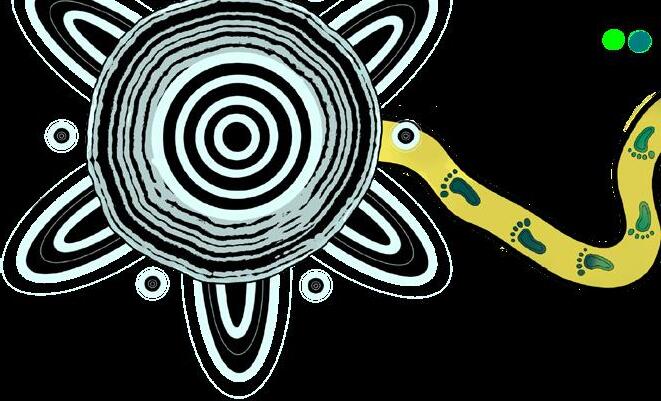
Develop and communicate opportunities for procurement of goods and services from Aboriginal and Torres Strait Islander businesses to employees.
Review and update procurement practices to remove barriers to procuring goods and services from Aboriginal and Torres Strait Islander businesses.
Maintain commercial relationships with at least 10 Aboriginal and/or Torres Strait Islander businesses.
• Using FY22/23 as a baseline, increase by 5% year on year spend with Aboriginal and Torres Strait Islander businesses.
Train all relevant employees in contracting Aboriginal and Torres Strait Islander businesses through Supply Nation or an equivalent organisation.
June annually
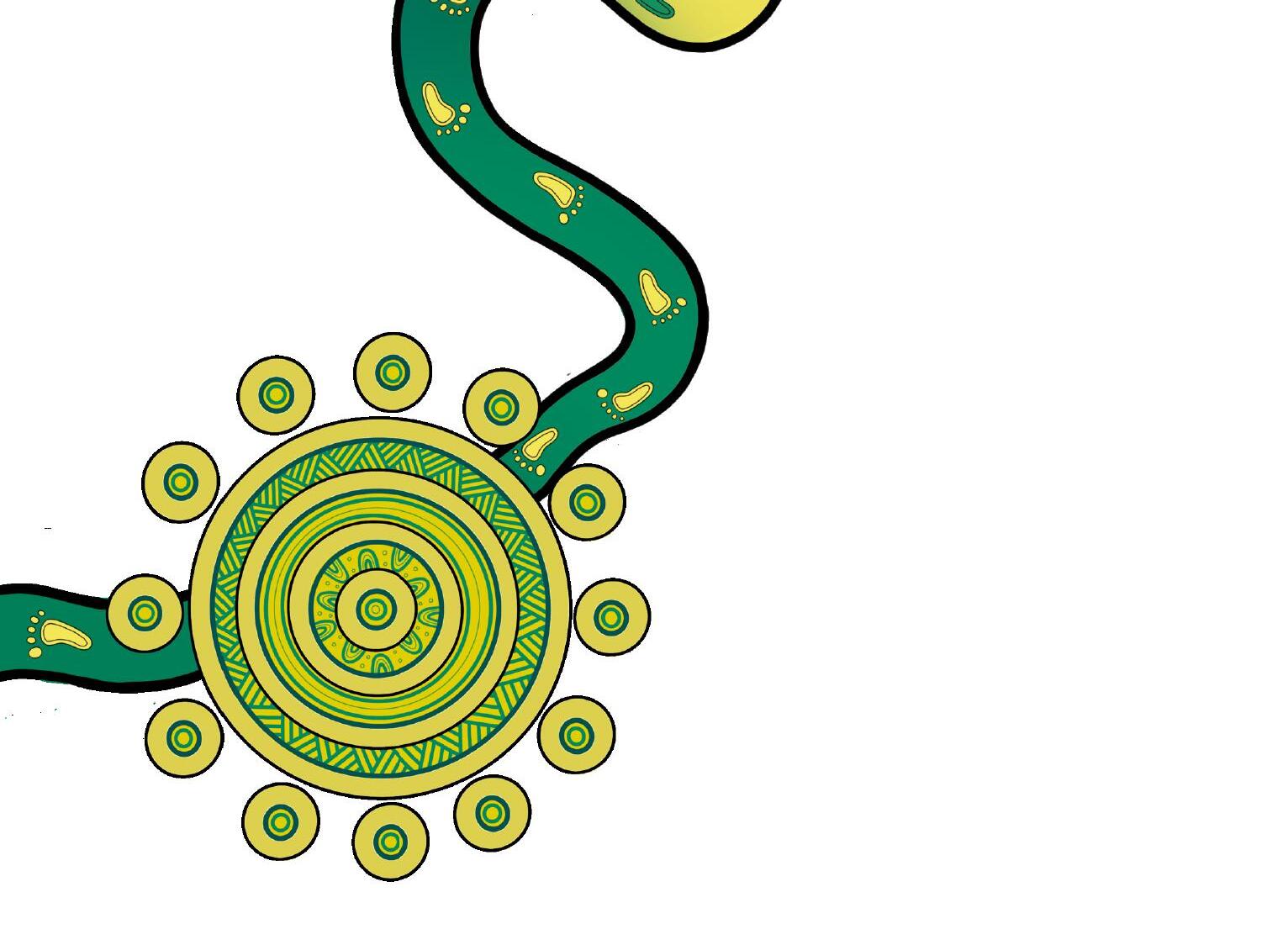
11. Sustainably strengthen opportunities for Aboriginal and Torres Strait Islander peoples to play, attend and follow cricket.
Assess data effectiveness to understand representation of Aboriginal and Torres Strait Islander peoples playing, attending and following cricket and improve data capture and analysis.
Utilise insights to enhance strategic decision making relating to increasing representation of Aboriginal and Torres Strait Islander peoples across all facets of the game of cricket.
Double investment through participation growth funding streams for Aboriginal and Torres Strait Islander cricket engagement activities to 10% by 2027.
Consult with Aboriginal and Torres Strait Islander communities to understand barriers and opportunities for growing representation of Aboriginal and Torres Strait Islander people in high performance and national teams. The consultation will include:
- Aboriginal and Torres Strait Islander players, coaches and mentors from State and Territory Cricket Association representative teams;
- Aboriginal and Torres Strait Islander past and present CA contracted players;
December 2024
June annually
June annually
July 2027
July 2027
July 2027
July 2027
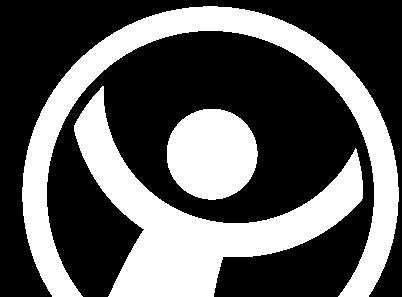
July 2026
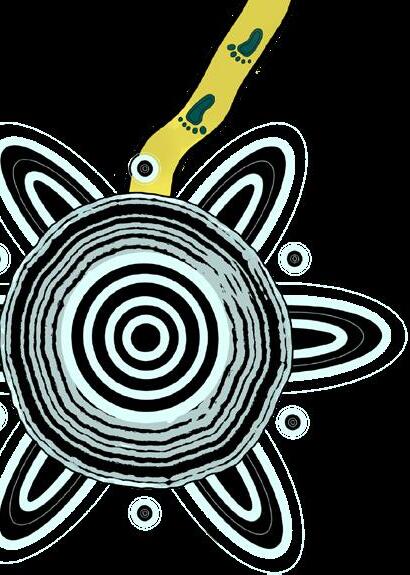
ACTION
DELIVERABLE
- Aboriginal and Torres Strait Islander employees across Australian Cricket; and
- Members of CA’s National Aboriginal and Torres Strait Islander Cricket Advisory Group.
• Provide one Level 3 cricket coaching scholarship annually to an Aboriginal and/or Torres Strait Islander coach.
Work with relevant marketing, digital and communications teams to develop and implement a National Indigenous Cricket promotion plan, to amplify existing Aboriginal and Torres Strait Islander cricket competitions.
• Implement an Ambassador Program to provide a platform for respected and influential role models to advocate for inclusion and diversity and create more opportunities for Aboriginal and Torres Strait Islander peoples to engage with cricket.
Deliver the National Indigenous Cricket Championships and the National Indigenous Cricket Development Camp.
• Participate in an international competition featuring the Australian Indigenous Women’s or Men’s team.
Provide culturally informed wellbeing support for national representative team players, coaches, and mentors. This will include:
- Aboriginal & Torres Strait Islander stakeholders will facilitate sessions at the National Indigenous Cricket Development Camp and the National Indigenous Cricket Championships on social emotional, and cultural health wellness, including where to access support.
July 2027
July 2025
December 2024
April 2025, 2026, 2027
2025, 2026, 2027
November 2024 and April 2025


Governance will provide CA with the structure and clarity needed for effective implementation and sustainability of the RAP commitments. Strong governance ensures that the dedicated RAP Working Group is driving the RAP’s advancement, with representation from Aboriginal and Torres Strait Islander communities playing a critical role in shaping initiatives that are culturally informed and impactful. Key focus areas of governance are essential to ensure the RAP is not just symbolic but a living document that guides action and accountability.
12. Maintain an effective RAP Working group (RWG) to drive governance of the RAP.
Maintain Aboriginal and Torres Strait Islander representation on the RWG.
Review and update the Terms of Reference for our RWG.
Meet at least four times per year to drive and monitor RAP implementation.
June annually
July annually
January, April, June/July, October annually
Provide appropriate support for effective implementation of RAP commitments.
Build accountability and transparency through reporting RAP achievements, challenges and learnings both internally and externally.
Embed resource needs for RAP implementation.
Embed key RAP actions in performance expectations of senior management and all staff.
Embed appropriate systems, responsibility and capability across the whole of business to track, measure, and report on RAP commitments and the ensure deliverables are not impeded by changes in resourcing.
Maintain an internal RAP Champion from senior management.
Include our RAP as a standing agenda item at senior management meetings.
Contact Reconciliation Australia to verify that our primary and secondary contact details are up to date, to ensure we do not miss out on important RAP correspondence.
Meet quarterly with Reconciliation Australia to discuss RAP implementation
Contact Reconciliation Australia to request our unique link, to access the online RAP Impact Measurement Questionnaire.
Complete and submit the annual RAP Impact Measurement Questionnaire to Reconciliation Australia.
• Report RAP progress to all staff and senior leaders quarterly.
Publicly report against our RAP commitments annually, outlining achievements, challenges, and learnings.
June annually
July 2027
November 2024
Head of Social Impact & Sustainability
Head of Social Impact & Sustainability
Head of Social Impact & Sustainability
Chief Financial Officer
Executive General Manager, People & Culture
Senior Strategy Lead
November 2024
January, April. July, October annually
June annually
Executive General Manager, People & Culture
Senior Strategy Lead
Head of Social Impact & Sustainability
January, April. July, October, annually
30 September annually
30 September annually
January, April, July, October annually
October annually
Diversity & Inclusion Specialist
Diversity & Inclusion Specialist
Head of Impact & Sustainability
Head of Impact & Sustainability
Senior Internal Communications & Stakeholder Partner
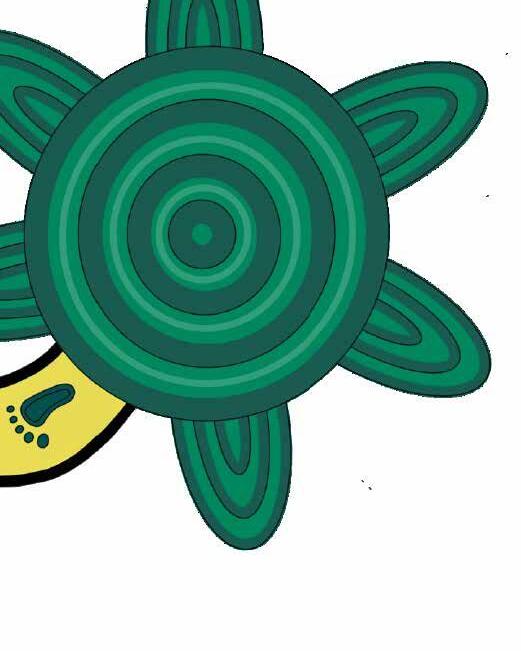
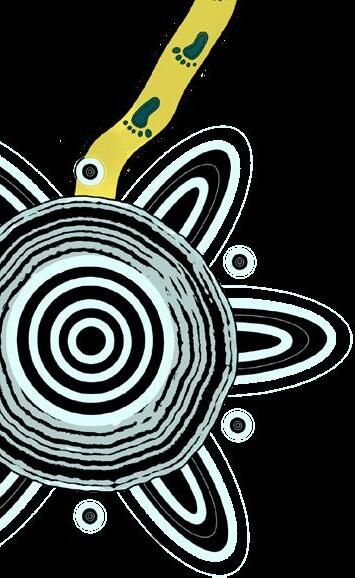
Investigate participating in Reconciliation Australia’s biennial Workplace RAP Barometer.
Submit a traffic light report to Reconciliation Australia at the conclusion of this RAP.
May 2026
November 2027
15. Continue our reconciliation journey by developing our next RAP.
16. Maintain the National Aboriginal and Torres Strait Islander Cricket Advisory Group.
Register via Reconciliation Australia’s website to begin developing our next RAP.
Group to meet quarterly with a minimum of one face to face meeting each year, with representatives from all State and Territory Aboriginal and Torres Strait Islander Cricket Advisory Groups to:
provide leadership and advice on developing and delivering CA’s RAP; assist CA to lead a dialogue aimed at educating the wider community on issues impacting First Nations people; and provide guidance on specific targeted actions aimed at enhancing the connection between First Nations peoples and the game of cricket.
August 2027
February, May, August, November annually
Diversity & Inclusion Specialist
Diversity & Inclusion Specialist
Diversity & Inclusion Specialist
Executive General Manager, People & Culture

CA’s approach to delivering on our strategic priority of championing inclusion, social impact and sustainability is grounded in our contribution to the United Nation’s Sustainable Development Goals (SDGs). The SDGs are a blueprint for people, planet, and prosperity. This RAP supports the SDGs by contributing to the following goals:
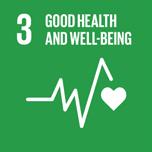
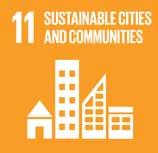
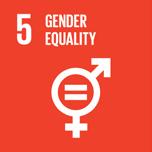

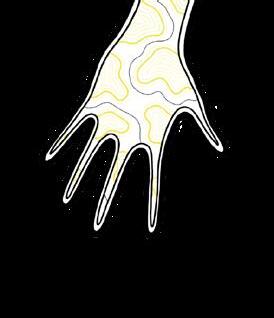
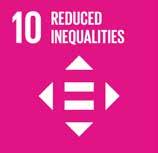
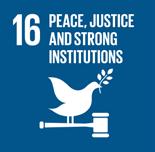
Name: Megan Barnett-Smith
Position: Head of Social Impact & Sustainability
Phone: +61 3 8538 9880
Email: Megan.Barnett-Smith@cricket.com.au
